#Unsurprisingly the reviewer is a white man
Text

JUST BECAUSE IT'S A MOVIE ABOUT CHINESE-AMERICANS DOESN'T MEAN WE HAVE TO TALK ABOUT THE PANDEMIC OR INTERNATIONAL RELATIONS THE MOVIE IS LITERALLY A RAUNCHY SEXY COMEDY
#What the FUCK do you want#I personally didn't love the movie but what the fuck is this review#Unsurprisingly the reviewer is a white man#Joy ride#Joy ride 2023#Sinophobia#This may come as a surprise but we Chinese diaspora don't actually talk about covid and fraying china-us relations every day!#Non sw
224 notes
·
View notes
Photo

Book Review
Ratner’s Star by Don DeLillo
Somebody once told me that Don DeLillo’s Ratner’s Star is an inscrutable novel, impossible to interpret and impossible to understand. I took this as a challenge. After all, I’ve read supposedly impossible books like Ulysses, Finnegans Wake, and Gravity’s Rainbow. I’ve plowed through The White Goddess by Robert Graves and managed to make some sense out of Heidegger’s Being and Time and Sartre’s Being and Nothingness. The trick to understanding these books is knowing what to read for, where to look for it, and how to separate the main ideas from the noise and irrelevant details. And especially be careful when listening to others who have read these books and obviously didn’t understand them, but felt a need to explain them anyways. Whether I am guilty of this or not will be left to others to decide. My take on Ratner’s Star is that it is a picaresque-style novel and that Billy Twillig is one of the least important characters in the narrative.
Billy Twillig is a prodigal scholar. At the age of fourteen, he wins the Nobel Prize for mathematics due to his work with zorgs, a branch that only six people in the world are able to understand. Billy gets taken to a secretly-located institution to work on an assignment to decode a message received from aliens in outer space. Billy, unsurprisingly, acts like a teenager despite his advanced skills, an aspect of him that never gets fully explored by DeLillo in the narrative. He is equal parts cheeky and horny, taking every chance he can get to ask questions of the adults that deprecate them but never himself. The institute itself seems, at times, more like a lunatic asylum than it does a research facility. DeLillo says that this first half of the book was modeled on Alice’s Adventures in Wonderland. I didn’t pick up on that by myself, but after having learned that, it fits more or less.
The other scientists are eccentric, to say the least. After arriving, Billy encounters some of them in an artificial, man-made Elysian field. One of the first he meets is Cyril, a scholar working with a team of linguists to define the word “science”. This task is harder than first imagined as they can not agree to where the parameters of the definition lie. Some of them argue that primitive magic, as described by Frazer in The Golden Bough, should be considered part of the definition because those folk magic and customs were devised for the same reasons that science was invented; the purpose was to understand nature and the universe and to exert some sort of control over it for the benefit of humanity. Modern science is nothing more than a precise and more finely tuned form of magic.
Throughout the course of the discussion, Billy is introduced to some female scientists who study the natural elements and he think of them as nothing less than Pagan deities. After assigning one of them the characteristics of a water goddess, he spies on her while she is bathing only to be chastised by her when she catches him. This scene alludes to Artemis, the Greek goddess of chastity, who caught Actaeon spying on her in the woods. This Paganism is all significant because it introduces a theme that pervades throughout the entire book, the primitivism of science as it encounters the frontiers of human knowledge and also the disconnection between language and reality. Since thought, science, and mathematics are all products of language, all of which are tools used to comprehend what we encounter as real, nothing can ever be known in full. The signifier can never be equal to the signified. In the context of comparing Pagan magic and its transition into science, the same questions are foundations for both endeavors with science introducing higher levels of accuracy but also increasing levels of complexity to the point where finding defnite answers may be impossible. Where magic and religion have finality, closure, and the illusion of certainty, science offers only open ended questions that never stop expanding.
Billy Twillig proceeds to meet other strange, eccentric scientists in a similar vein. One is an Indian woman from the untouchable class who studies animal communication and how they are able to think without language. Again, this is another commentary on language and the nature of thought. How can we even use language to comprehend thought that manifests without language? Considering the woman is untouchable, Billy wants to know what would happen if he touches her leg. “Nothing, obviously,” is the woman’s answer, rendering the concept of “untouchable” an empty set. There are also two sleazy gangster types who speak an odd mishmash of languages and left me wondering if they were actually space aliens. They represent the Honduran Syndicate and wish to recruit Billy to manipulate international financial markets. Yet another doctor, claiming to be a lapsed Gypsy, whatever that means, and wants to get rich by turning Billy into a super-computer by inserting brain-accelerating electrodes into his head. Also in a secret ceremony, Billy meets the old scientist Ratner who lent his name to Ratner’s Star, the part of the galaxy where the coded message came from. Ratner was an astronomer who abandoned science as a career and embraced the mysticism of Hasidic Judaism when he realized that science can not answer the question of what happens when we die. On his deathbed during the ceremony, Ratner tells Billy his life story and then whispers the ultimate secret of life into Billy’s ear, but the secret is the most mundane statement you could possibly imagine. But the symbolism of the old passing traditional knowledge down to the young is what is most important here. It also exemplifies how mysticism is a closed system of information whereas science is, by contrast, an open system.
Those are some of the minor characters from the first half. One of the more important characters is Billy’s father who doesn’t contribute too much to the overall narrative, but does introduce one important theme. He takes Billy down into the subways of New York City, where it is dark and there is a danger of getting hit by a train, to teach him that the basis of life is fear. In this instance Billy directly experiences the fear of death since getting hit by a train in the dark would inevitably result in death. Indirectly, DeLillo is pointing out how the fear of death leads to magic, mysticism, and religious thought. Through Billy’s father, DeLillo also points out that fear can lead people to live lives of absurdity since the father owns a guard dog that no one is scared of except for young Billy, develops a neurosis over a pile of dirty dishes in the sink, walks the streets prepared for brawls that never happen, and almost assaults an elderly and frail Chinese man who he mistakes for a mugger. The father also makes the mistake of admiring a tall and talented basketball player for being the kind of son he wishes he had even though the athlete makes a dumb decision that ruins his career while Billy goes on to be a success. The father even considers murdering Billy out of fear of how the boy, unusually small for his age and full of unusual ideas, will make the family look. The father’s fear of death does not lead him to make wise or sensible decisions about life which may be DeLillo’s critique of religion and the possibility of science as an alternative.
Then there is Endor, the mathematician who was assigned to crack the code from Ratner’s Star before Billy came along. Endor lost his patience, moved to a remote location, and spent the rest of his life living in a hole, eating grubs, and digging a tunnel. This latter project parallels the scientific task in that research involves digging oneself deeper and deeper into a hole that eventually will lead to some truth. Endor, as we learn later in the book, actually solved the code before seemingly going crazy. After doing so, he realized that the tunnel digging involved in solving the puzzle created a tunnel leading nowhere as the answer to the original problem ultimately led to more questions rather than one answer. So Endor quit and began digging a tunnel that literally had no purpose and led nowhere. But it did mean something symbolically. The entire book is full of tunnels and hallways all joining up with enclosed rooms, caverns, cells, and enclosures. These may or may not allude to the kabbalah diagram that Ratner describes to Billy as he dies.
In fact, there is one astrophysicist who explains to Billy that black holes are entrances to tunnels and anything that enters them re-emerges in another part of the galaxy. Every star corresponds to a black hole. I am not atronomically literate enough to know if this is true, but it serves a purpose in the book. The man who explains this to Billy is Orang Mohole, the man who discovered moholes, or pockets of hidden space that permeate the cosmos. This character is significant because his moholes play a major part in explaining where the message from Ratner’s Star came from and why they took so long to reach Earth. Mohole is also a pervert and a bipolar psychotic who enjoys inventing sex toys as if he is preoccupied with penetrating into the secret spaces of women’s bodies. He also sometimes goes crazy and shoots people at random. It is possible that he is the man having a firefight with the police when the riddle of the coded message is solved. As if he entered a narrative black hole and re-emerged in another part of the book, kind of like the Aboriginal shaman with white hair and one eye.
If the first half of the book is meant to portray the different aspects of science, two things are certain: one is that teamwork is necessary for scientific research; none of these people are working on their own, but rather they are each deeply involved in one complex part of a larger scientific problem. The other deduction, and the other side of that teamwork, is that individual scientists are lonely, eccentric, and socially isolated people who often risk their sanity for the cause of discovering higher truths. The fact that science, as an open system of information, can never be complete, drives some practitioners into mental territories that suggest locations on the autism spectrum. And all these characters in the first half do represent aspects of science. Ratner represents its mystical element. The Honduran Syndicate represent the exploitation of science for technocratic power, the lapsed Gypsy is the commercialization of science, and Cyril shows how science, in its inability to finally and completely explain the nature of existence, is always at the frontier of human knowledge, while Endor portrays the problematic side of science in that it can never fully explain nature the way religion can.
By the start of the second half of the book, one thing becomes clear; Billy Twillig’s purpose is to provide a structure to the novel and a thread that holds the whole mess together. He is like Virgil leading Dante through Hell in The Divine Comedy, only we, the readers, are Dante and Billy does not tell the stories of the lost souls we encounter, rather he lets them speak for themselves.
In this second half, Billy continues to serve his narrative function as the main character but not the most important character since that role gets filled by Softly, a drug and sex addicted dwarf with a deformed and asymmetrical body. He takes Billy into some underground tunnels to a cavern compound below the institute where they have been working. Softly has assembled a team of scientists to construct a language based purely on logic and mathematics that will be utilizable as a tool so that any intelligent living being on Earth or in outer space can communicate with perfect efficiency, without any ambiguities or misunderstandings. Wasn’t Esperanto meant to do something similar? Softly explains to Billy that he originally brought him to the institute for this secret project. When Billy asks why he had to spend so much time working on deciphering the message from Ratner’s Star even though no one actually cared about it, Softly explains that that project was nothing but preparation for this more important task. In terms of structure, this is the author’s way of telling us that the first half of the novel introduces all the themes of the book and the second half puts them into play. The metanarrative is actually encapsulated in the narrative. Is this Chomsky’s recursion at a semantic level? Remember how most of Moby Dick was descriptions of whales and the esoteric language associated with the practice of whaling? The layman needs to learn all of that so they don’t get lost in technical descriptiveness when the action of the novel begins. Well, that worked for Herman Melville, but not so much for Don DeLillo. Ratner’s Star reaches a narrative plateau rather than a narrative peak. While Billy isolates himself, refusing to do any work, the others set about the task of creating the language and, by God, they create it. Oh yeah, and Billy cracks the code of Ratner’s Star too. No big surprises or conventional conflict resolutions.
But like the first half of the book, the second half is really all about the characters. Where previously characters were meant to represent different aspects of the scientific endeavor, now the characters in the project are brought into three-dimensionality for an exploration of their individual motives. One man works on this project to advance his career and status in the scientific community, one woman uses it as a means of fueling her own philosophical theories about language. A third is engaged in the project to reconcile his identity as a Chinese-American man, being unable to fit completely into either category of “Chinese” or “American”; He latter concludes that language barriers prevent him from being wholly one or the other. The most poignant portrayals of the inner lives of the characters come from Softly and Jean Venable, an author he hires to write a book about the project. Jean is actually a talentless writer with a turbulent psyche and an unfulfilling social life, possibly even suffering from mental illness. Softly chose her because he wants the story to be told to the general public by someone who doesn’t understand science; in other words, he seeks fame through mass popularity while also seeking prominence in intellectual circles through his real work. Actually, though, he is more preoccupied with using Jean for sex to overcompensate for his physical malformations. As we get to know Softly more, we learn that he is motivated by insecurity and self-loathing. He refuses to look into mirrors out of disgust and tries to conquer the world to make up for his inadequacy.
Otherwise, the scientific themes in the second half are really just expansions on the themes introduced in the first half. One theme that deserves some attention here is that of mathematics. A lot of readers are put off to this book because of it, but you don’t actually need to do any math to follow what is going on since DeLillo limits his exploration to theoretical mathematics rather than applied mathematics. What I get from this book is the need for math to remain an open system of communication so that mathematics can expand eternally and adapt to scientific changes as more knowledge accumulates. The paradox is that while pure mathematics deal in absolute truths, applied math needs to be constantly readjusted to function since science is a process of never-ending self-correction. Pure mathematics can only be self-referential thereby posing the question of whether they are pure or not when we utilize them to explain scientific objectivity. Or do we, in reverse, adjust our perceptions of objectivity to correspond with the ultimate truths of pure mathematics? Of course, this is postmodernism so there can ultimately be no solution to these problems. Is postmodernism meant to be an admission that there are limitations to our intellectual abilities or is it merely just a cop out? When reading Wittgenstein I think it’s the former, when reading Derrida I think it’s the latter.
In the end, Ratner’s Star certainly has its flaws. The anecdotes about Billy’s childhood don’t lend a whole lot to the overall story and I think some of them should have been written to completion or else left out entirely. I guess in postmodern novels, not everything makes sense because the world is just that way. Pynchon can get away with this, but here DeLillo appears to have made some poor editorial choices. Billy could have been developed as a character more too. I know he is more of a narrative device than a real character, but this still leaves a huge void in the center of the novel that makes it underwritten which is strange considering how overwritten everything else in this book is. Speaking of Pynchon, DeLillo intended this to be an homage to him. But instead of reading like an homage, it comes off as derivative and unoriginal. There are secret plots, paranoia, underground tunnels, secret societies, communications theory, arcane technological jargon, loose plot threads, sexual perversion, non sequiturs, narrative derailments, and even a couple songs stuck in at random places. It’s as if DeLillo took every element from Pynchon’s first three novels and repurposed them for his own novel. It is often too close to Pynchon to be good, but isn’t that also postmodernism? There is never anything new, only copies of copies of copies? In DeLillo’s case it doesn’t quite work. But this novel is far from being a failure. The well-drawn characters are unforgettable and full of depth, so much so that within a sentence or two they feel complete and fully realized. This is a trick few authors can master.
Would Ratner’s Star stand on its own for a reader who had never heard of Pynchon? I think it would. There is enough brilliance here to be independently evaluated without the overbearing shadow of the great and mysterious Ruggles. DeLillo is full of his own ideas and this is a unique exploration of language, logic, science, and mathematics that could never be recreated by anyone else. DeLillo’s later novels were definitely better, and Ratner’s Star is not for the casual reader, but for those who make the effort, and especially those who have an eagle’s eye for fine details, reading this book is a rich and rewarding experience.
3 notes
·
View notes
Note
[Mishiro landed softly on foreign grounds once again, her eyes scanning the surroundings. The Demon World, but some place she hadn't visited before. But if her memory from things she'd heard Amriel mention served her well, this was the Owl Clan's territory. Unsurprisingly, there were a good number of presences lingering around. One considerably strong one was very close, which should have made Mishiro turn around and disappear.]
[But curiosity took her over instead. After all, she had never met a member of this clan before. Perhaps they would prove more courteous than those Vampires? She tried to appear as non-hostile as possible as she turned to face the man she'd stepped close to.]
Hello? Excuse me, this is the Demon World right? Can you tell me where we are?
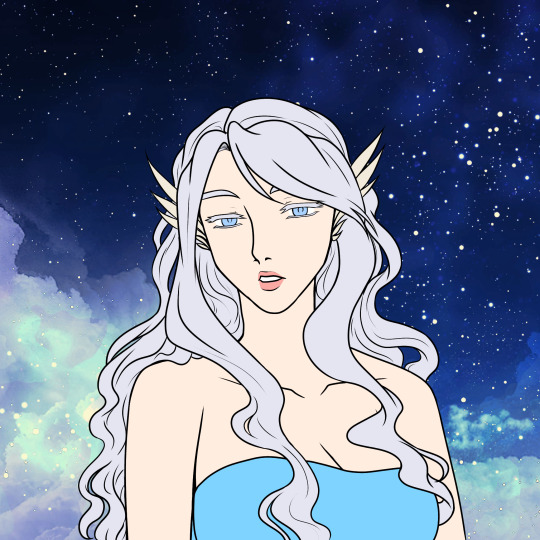
((@the-timeless-founder 👀))
The light noise originating from multiple hasty footsteps crashing against the stoned ground and soft whispers between the feathers of the unfolded wings that glided in the sky hardly disturbed the serenade of the wild nature of the clan; both wild green leaves whistling as they danced in the breeze and songs of ruminant animals eating the damp grass at their feet.
The considerate young Owl kept his eyes glued to a notepad covered in black ink that reminded of the duties that had to be fulfilled, occasionally the gold citrines with fuchsia reflections like amethysts stood up to review said obligations and then proceed to write them down on the barely white painted paper. His mind was totally focused on his work, that when a female voice pierced his ears he couldn't even look at her. "Cephalonia, Golden City." The man replied in a monotone due to his impeccable nonchalance as he continued to move slowly through the plaza writing down his notebook.
Suddenly, his mind could not continue to concentrate on his chores, he continued to feel a presence nearby and his nose continued to inhale a heavenly aroma. "Damn it, still here?" The blue-haired man spat somewhat irritated to raise his gaze and fix that Sahara desert on the unknown woman, reflecting sandstorms that destroyed everything in its path on those doors that were supposed to reflect his soul.
Upon closer inspection, Zazu noticed that the female albino did not belong to that place, either because of her blue eyes or her feathered ears. Raising one of his eyebrows in disbelief, Suwan finally sighed and cleared his throat to turn his whole body to her. "It's the first time that I see a foreigner step on our lands. Can I offer you something or are you lost?"

[@the-timeless-founder]
19 notes
·
View notes
Note
Hi, I was wondering if you take prompts via this blog. If you do, I would like to request/prompt a kidnapped Peter Parker fic for your Autistic Peter Parker series. Plenty of whump and plenty of comfort please. :)
Hi there! I'm sorry it took me so long to answer this, but I finally finished your request!! Thank you for the prompt, I hope you enjoy this!
I'm lost (will you rescue me?)
Read on ao3
Summary:
"The hospitality here is awful" he said in between punches landing on his face. "I'm gonna leave you a bad review on yelp. Half a star, just because the chair is quite comfortable, except for the ropes. They itch."
"Shut his mouth already" snarled one of the men.
------
or
In which Peter is kidnapped and is not having a good time. Tony to the rescue!
Peter woke up with a groan, wincing at the pain on his wrists. He tried pulling his arms up in a more comfortable position - the one he liked to call "raptor hands" - but they wouldn't move.
Frowning in confusion, the boy opened his eyes, only to immediately close them again, wincing at the harsh yellow lights above him. He squeezed his eyes shut before slowly opening them again.
Wincing as he tried adjusting to the lights, Peter frowned when all he could see was a dirty white wall in front of him. Looking down, he noticed that his legs were tied up by the ankles with a piece of rope that he couldn't seem to break loose.
He closed his eyes again, willing himself to take deep, calming breaths and try to listen to any clues to where he was. He could hear rats walking inside some of the walls, which, paired with the faint smell of blood and urine, made him gag.
Concentrate, Peter, he encouraged himself.
He soon noticed another noise, which he quickly identified as running water coming from the ceiling and the walls. All of his concentration washed away, though, as the next noise his ears picked up on was the scrape of metal on concrete. Peter whined, tilting his head from side to side in an attempt to block out the sound by rubbing his ears on his shoulders.
Unsurprisingly, it didn't work, so his next solution was to bang his head against the back of the chair he was tied to. He hit once, twice, three times, each stronger than the last. Then, he rested his now sore head on the chair.
"Freak" said one of the men he could finally hear from the other room.
"The hell's he doing?" questioned the other.
Peter brought his head forwards and whacked it again, not stopping this time.
______________________________________________________________
Tony received an alert from the watch he gave Peter - which contained several safety features - and he immediately dropped what he was doing to call for a suit. If the alert was coming from the watch and not the suit, it meant that Peter was in trouble as Peter Parker, and not as spider-man.
The tracker was activated when the panic button was pressed, so Friday already knew where to take Tony. The location was a warehouse in the middle of an industrial area, with workers all around.
"How the hell would Peter end up here?" Tony wondered out loud.
"I detect an immobile heat signature similar to Peter's near the far left corner of the warehouse, sir" Friday answered.
"Thanks, Fri" Tony responded as he flew towards the other end of the building, cringing at the sounds of construction. Peter must be hating this, he thought.
______________________________________________________________
Peter was definitely hating his stay.
"The hospitality here is awful" he said in between punches landing on his face. "I'm gonna leave you a bad review on yelp. Half a star, just because the chair is quite comfortable, except for the ropes. They itch."
"Shut his mouth already" snarled one of the men.
"On it, boss" responded the second one, before landing a punch on Peter's chin, which he swore shook his entire brain inside his skull.
"Now, tell us where the blueprints can be found!" exclaimed the third man.
"Once again, I have no idea what you're talking about!" Peter responded, getting desperate. They kept asking about some project's blueprints, but he didn't know what it was, let alone where - not that he would tell them anyways.
"Let me be clear" the leader started, stepping forward, "we know you have a little internship with Stark. We also know that you are quite close to the man. So be honest with me, Peter Parker."
Suddenly, Peter froze. That's when he first realized he had not been taken as Spider-man, but as Peter Parker, walking home from school.
Noticing the color had drained from the boy's face, the men smiled.
"Not so sassy now, are you?" one of them snarled, before surprising him with a punch to the face, despite his spider-sense. The sensory input, added to the emotional stress, left Peter too distracted from his super-powered senses. Not to mention that the boy was pretty sure he had been injected with something, if the slight sting on the inside of his elbow and his growing disorientation and lack of strength was anything to go by.
The three men had some more fun trying to beat the answer out of Peter, before finally leaving him alone as they walked out of the room talking about ransom - though not before injecting the mysterious substance into the boy's blood once again.
Peter let out a sigh of relief when they left, wincing at the pain on his ribs, face and, well, everywhere.
However, his relief was short-lived, as soon the sounds started again, with the sharp sound of metal against metal.
He whined, bringing his shoulders up to his ears. His arms attempted to use his hands to cover his ears, but the binds only dug more into his wrists with the movement. Peter then moved them again, only with more force, so instead of leaving a light and itchy sensation, the rope left burning marks on his wrists.
He rotated his wrists, the ropes leaving red marks in their place, as his senses gradually dulled from the drugs.
______________________________________________________________
When Tony arrived at the place where he found out that some men had been keeping Peter, at first he thought that the boy was unconscious. That is until he retracted his helmet and was finally able to hear the whine coming from his direction.
"Peter? Pete?" he called carefully, as he slowly approached the boy.
Peter didn't respond at all, not even acknowledging the man's presence. His head was down, chin touching his chest, but his eyes were open, staring unfocused at a random spot in the distance. The only sign that he was even alive was the continuous whine coming out of his throat.
"Come on, buddy, it's time to get out of this noisy place" the man tried to get the boy's attention.
When that didn't work, Tony sat down, cringing at the disgustingly filthy floor, and started rambling about random things, hoping that it would help ground Peter.
______________________________________________________________
About twenty minutes later, Peter seemed to start coming out of his haze, blinking slowly.
"Pete, you with me?" Tony asked quietly.
The boy only closed his eyes and squealed in response.
"It's okay, take your time" the man assured.
After taking a while to bear his surroundings and the sensory input, Peter finally turned to his mentor, frowning in confusion as he noticed the man was on the floor.
"You're right, this floor is gross" said the man, standing up. "Now, what do you say I get rid of all those binds for you?" he suggested, taking his pocket knife when the boy nodded.
"I'm going to touch your hands now, okay?" he warned, moving his own hands slowly so the boy would notice what he was about to do. Peter took a while to respond, but when he finally nodded, Tony slowly got closer to his tied hands.
Peter seemed to still be out of it, though, because even with Tony's warning, he jumped when the man touched his hands, squealing at the sensation.
"Yeah, they definitely gave you something" Tony muttered.
Did they? Peter wondered. Hm, that would explain a lot. He couldn't tell why, though, as his thoughts were jumbled and his head spacey.
His spidey-senses tingled again, and he squealed as he felt more touches on his hands.
"It's Tony, buddy" a voice said. "I'm untying you, remember?"
Peter didn't remember, but he nodded anyway, it felt right. When the touches started again, he didn't jump.
"Good job, buddy" the voice praised, and it felt good.
Suddenly, he could move his arms again, and he immediately flapped his hands in relief. But then, the touches were suddenly there again, first on his hands, then on his ankles, and the construction sounds were back at full force, bringing the awful smell of burned metal.
Peter's happy flapping turned upset when everything became too much. He whined, shaking his head to get rid of the sensation.
Tony immediately noticed the boy's discomfort.
"I know, bud, we're leaving soon, let me just untie your ankles" he said.
But when he tried to remove the binds around the boy's ankles, Tony was met with more distressed squeals.
"It's just me, Pete" he repeated, heart breaking for seeing his kid like that.
Peter's frowning and confused face turned to look at him again, though his eyes were still out of focus. Whether that was due to the drugs or exhaustion, Tony couldn't tell. It took him a few more minutes to successfully untie the boy, with a few breaks in between to let him calm down and give him time to process every touch.
"There you go, we're all good now," Tony lightly patted Peter's legs when he finally finished his task, "You still with me, bud?"
The man was relieved when Peter gave a tiny nod in response, showing at least a minimum sign of awareness.
On their journey to the medbay, Tony could feel the boy humming and weakly rotating one of his open hands side to side where he laid on his mentor's armored shoulder.
______________________________________________________________
Examining a mostly incoherent and disoriented enhanced teenager turned out to be a hard task. Even with the protocol that limited the sensory input in the room activated, Peter was still in distress, so Tony urged the medical team to wait until he calmed down before treating his injuries. It wouldn't be an issue, since according to the scans there were so major injuries. The only thing that had to be done immediately was a blood test to determine what substance was injected into the boy's bloodstream before his fast metabolism could completely flush it out of his system.
It didn't take long for Peter to fall asleep, though, as his exhausted body was too exhausted to keep fighting to get rid of any toxins, heal his injuries and cope with sensory overload. When Tony felt the small hand in his hold go limp, he kissed it softly and called the medical team over to finally treat the injuries.
______________________________________________________________
Peter felt his senses come back to him gradually, though he didn't feel completely awake. Without moving or opening his eyes, he tried to assess the situation to figure out where he was, as the last thing he remembered was walking out of school after saying goodbye to his friends. He could hear hushed voices nearby, and feel a soft blanket covering his body. He could barely sense any light from behind his eyelids, which he was grateful for, but there was an itching sensation on his nose. He scrunched up his face, lowly groaning in frustration as it didn't do anything to get rid of it. That action also made him aware of his dry mouth, making his tongue stick to the roof of his mouth uncomfortably.
"Peter?" the voices called, still whispering but sounding closer to him now.
"Come on, open your eyes"
The voice sounded so gentle that Peter felt the urge to comply. He slowly opened his eyelids, blinking a few times to clear his vision until he could finally make out the baby blue colored ceiling of the medbay. Finally feeling able to move again, he slowly brought his hand to his face in an attempt to remove whatever was still sitting uncomfortably on his nose. But his poor coordination seemed to be worse than usual, because he couldn't seem to find it. Has his nose changed positions or something?
"What is that about your nose, buddy?" a voice asked in amusement. Apparently, he had said that outloud.
Right, there are more people here, he thought and turned his head to the side.
"M'st' St'r?"
"The one and only. Good morning, sunshine"
Peter gave him a tired smile, but wondered who else had been in the room when he started to wake up. He could swear there was another voice. Was the medbay haunted or something?
"No ghosts here, bud. You may have heard your aunt's voice" Tony explained, "she went to get some water for you."
"Th's n'ce" Peter muttered contently, and smiled when he saw May enter his room.
"Welcome back, honey" she offered a cup of water, leading the straw to his mouth, "How are you feeling?"
Peter frowned, trying to assess his body.
"Sore" he said finally, reaching up in another attempt to scratch his nose. "Wh't happ'nd?"
May gently pulled his hand away from his face. "That's just an oxygen cannula, let's leave it there a bit longer, okay?"
Tony leaned forward in his seat, "what do you remember?"
Peter scrunched his face in concentration as the memories flooded back. A man had approached him on his way home asking for directions, so he stopped. He noticed it was a trap when his spidey-sense warned him of danger just in time to kick a syringe out of another man's hand who had been approaching from behind. He didn't have enough time to react, though, when he was held down while the first man took out another syringe. There was a burning sensation on his arm, and the next thing he knew he was fighting off a sensory overload while getting the shit beat out of him in a stinky warehouse.
Both Tony and Aunt May frowned in concern at his recollection, and May's eyes teared up as Tony followed up with his side of the story and the aftermath.
"You were smart enough to use your panic button, so it didn't take me too long to find you and fight off those guys. Apparently, they heard about this new mechanism I've been working on for medical environments and they wanted to weaponize it. They found out you're connected to me somehow and decided to target an innocent high school boy to get to me. I'm so sorry"
"N't your fault" Peter assured quietly, extending his free hand to the man, who immediately held it firmly in his.
"He's right, you know" May agreed, "Although I haven't always vouched for you and your choices in the past, I don't see how you could've prevented this. I'm just glad you got my boy back"
Tony gave her a wobbly smile, before his face hardened again in anger. "I'm still trying to figure out how they connected Peter to me, though. There isn't anything in the media, so I don't think there will be any major issues, but I will find out who leaked this information."
"Thank you for protecting him," May said, running her fingers through Peter's curls.
Even through his exhausted state, Peter could feel the emotion in both of their voices, and he felt the need to assure them.
"It's okay, 'm okay" he said, still slurring slightly, and both adults laughed softly.
"I think we should be the ones comforting you, buddy" Tony shook his head.
"That's right," May agreed light-heartedly, "Now get some rest, we'll be here when you wake up."
Peter didn't complain, sensing that his tired body still needed more time to recover. He rubbed his soft covers on his face for comfort, sighing happily as he was lulled into sleep again by the calloused hand holding his, and the soft fingers stroking his hair. He would be okay.
#autistic peter parker#irondad fic#irondad#iron dad#peter parker and tony stark#butterfly writes#my fics#irondad and spiderson
13 notes
·
View notes
Text
The Roger Moore Morally Compromised Mini-Marathon | Shout at the Devil (Hunt, 1976), Gold (Hunt, 1974) & The Wild Geese (McLaglen, 1978)

Mild spoilers below.
There's plenty you'll have to wince through when watching Shout at the Devil, which depicts the African continent as a playground for white adventurers, which relentlessly infantilizes its black characters while lingering over their dead bodies after they've been violently killed, which has as its most prominent African character a mute played by a white actor who is all too eager to hang villagers, and which has a character go undercover in blackface during the climax, as a cherry on top of a big ol' racist sundae. And this is not to mention that it asks us to root for an entirely self-interested ivory smuggler and features a poaching sequence so exuberant that the heroes are practically high-fiving each other as they kill a shitload of elephants. (Although a disclaimer assures us no animals were harmed during the making of the movie.) Unsurprisingly, the movie was produced in Apartheid era South Africa.
But I think Roger Ebert in his review, despite glossing over the film's issues, gets at its essence pretty succinctly, correctly noting that it's about the unironic embrace of jungle adventure movie with all its pleasures and idiosyncrasies. And if you can wince through all those aforementioned elements (and it's perfectly okay if you can't), you find much to enjoy here, starting with the team-up of Lee Marvin and Roger Moore, in incorrigible scoundrel mode and dashing but self-deprecating mode, respectively. Even the introduction of Barbara Parkins as Marvin's daughter and Moore's love interest doesn't sink the film, as Parkins is able to complement both of their performances pretty nicely and give the movie a bit of heart. Everybody knows all girls have cooties, but Parkins and the movie take measures to mitigate their spread.
There's also the fact that Peter Hunt, who directed one of the best Bond movies and edited a few others of similar pedigree, is a really good action director. There's one great scene where the heroes ambush a German convoy going down a hill, and the sense of diagonal movement snowballs, powered by both the astute editing and the unexpectedly gruesome violence, which, along with all the dicier elements, makes this feel like an exploitation movie despite the A-grade production values.
Compared to Shout at the Devil, Gold, an earlier collaboration between Peter Hunt and Roger Moore is maybe a bit easier to get through, in that it offers some semblance of self critique for choosing to film in Apartheid South Africa. Here, the gold mining industry is depicted as a purely amoral enterprise, the kind that is happy to kill off its own employees for short term gain, or, you could infer, maybe do business with a repressive regime. And it shows at least nominal sympathy for its black characters (and treats them as actual characters). A lot of the movie is about traversing through corporate politics, which I probably find more interesting to watch than the average viewer (a bizarre side effect of being a business major), although it must be said that Moore has great chemistry with his co-star Susannah York, and we get a pretty appealing performance from Ray "Dial M for Murder" Milland as the gruff patriarch. Hunt's talents as an editor are somewhat underused, but I like the way he presents the mine as one big machine, with a series of moving parts working in unison, all integral to its proper functioning. All that being said, the fate meted out to the villains feels like something from a dumber movie, and for some reason there's a Bond style theme song and opening credit sequence but with gold mining instead of racy silhouettes. (If you want more serious Moore, I'll recommend The Man Who Haunted Himself, which makes a pretty nice case for his acting talents and gives him some unexpected vulnerability. Also, he has a mustache.)
And of course I had to cap off my Roger Moore morally compromised mini-marathon with a rewatch of The Wild Geese, a movie that I've grown a real affection for, thanks to both familiarity, and the fact I'm a sucker for these old school men on a mission movies. Listen, the politics here are awful, and even more cringeworthy is the movie's attempt to hide it by pairing the deposed African president the heroes rescue with the most racist member of the group. Winston Ntshona and Hardy Kruger, the actors playing the president and the racist, respectively, both took their roles hoping for a serious movie about racism and African geopolitics. That seriousness did not materialize in the finished film, which resolves these issues with a quick conversation by the one hour thirty-two minute mark, at which point it can get back to shooting and blowing stuff up. For what it's worth, Ntshona and Kruger are actually committing to the material, and Kruger is especially good, although the movie plays its hand by allowing Kruger to articulate his mixture of racial resentment and isolationist views with unusual clarity while saddling Ntshona with vague platitudes. (And if you think racism is the movie's only questionable stance, it also relentlessly pokes fun at the one gay character, although it does eventually give him some good scenes.)
A bit easier to enjoy, perhaps at the movie's expense, are the presence of Richards Burton and Harris. I understand both of them were not allowed to drink during the production, and while I am not a good enough judge of alcoholism to tell if they look hungover from sneaking sips at night between shooting hours, or angry because they haven't been able to drink, there's an undeniable booze-adjacent contempt in their performances. (For what it's worth, Harris looks more cheerful, but I've found him the more innately energetic actor from experience.) The other big star is Moore, who gets by on his natural charisma but isn't as good as he is in Shout at the Devil or Gold or his Bond movies.
Honestly, for the first half, the movie seems to be rather badly made, shooting scenes in the most drab, limp way possible and resolving every confrontation with as few hiccups as possible. An attempt to rescue a character being hunted by the mafia ends with the mafia abruptly lifting all the contract put out on him. The siege on the base where the president is being held ends with no losses for the heroes, the guards all being sprayed with cyanide gas in their sleep or killed instantly with a crossbow. These characters are supposed to be highly trained professionals who can do this in their sleep, and that's basically how it plays, for better or worse. But complications do eventually arise, and the movie thankfully gets a lot more exciting. There's a half hour or so in the third act where the characters are retreating through the bush from a rapidly advancing army while trying to secure an exit, depicted as a near constant stream of close quarters gunfights and on-the-fly defensive tactics. As limp as Andrew V. McLaglen's direction is in the first half, he wisely gets out of his own way here, moving things along at a fast clip and letting the shooting, bleeding, dust and wilderness do the talking. (For something that feels tonally like a classic WWII era actioner, complete with rousing score, it's quite a bit bloodier than you'd expect.) It's a great action scene, and goes a long way in warming me up to this movie.
#film#movie review#shout at the devil#gold#the wild geese#peter r. hunt#andrew v. mclaglen#roger moore
2 notes
·
View notes
Text
Literature Review: The Essential Rationality of Male Violence and Violent Rhetoric: Why the Patriarchy Needs Andrew Tate -- New York Magazine Feature: Tate-Pilled
[Note: this post was drafted in March and does not include updates from the last two months. all emphasis is mine.]
You're living in your own world, where love is all synthetic
[...]
Yeah, poor little [boy]. Cries [his] eyes out, it's all part of the show.
-- G-Eazy, Downtown Love [edited]
Tate-Pilled attempts to hone in on the evil that is Andrew Tate and his appeal to teenage boys. It's very comprehensive. However, I disagree with the premise that devotees of Tate are victimized by feminism and anti-racism and therefore cannot be blamed.
Tate-Pilled relies on a familiar litany in which boys, especially white boys, are constructed as infantile, vulnerable, and in need of validation and protection, lest they take violent and justified revenge when they reach manhood.
Likewise, Andrew Tate himself is constructed in a similarly sympathetic manner, despite the many descriptions of his callous, sadistic, and [allegedly] criminal behavior.
Miller [the author] suggests that Tate's 'barbarism' [her word, not mine] is simply a learned behavior and a rational, or at least, expected response to his experiences. Like the best and most sopping-wet pathetic little meow-meow of Tumblr's own beloved fictional male villains, Tate had a troubled childhood. His Black father was a paragon of the masculinity Tate portrays now -- gambling, drinking, womanizing, and left young Tate with his white mother, blaming her for the collapse of their family [It's a little Othello and Desdemona for my taste]. It's implied the combination of his parents' divorce and growing up poor soured him against all women, instilled in him both severe daddy issues, an adoration for toxic masculinity, and a ravenous hunger for wealth and fame.
As a poor kid in the council flats, Tate would see men driving Ferraris and become enraged that they seemed to be flaunting possessions he could not afford. Things would be different when he became “rich rich.” From Emory, the chess master, Tate seemed to have learned to see human existence as a battlefield with winners and losers, men and bitches, kings and “brokies.”
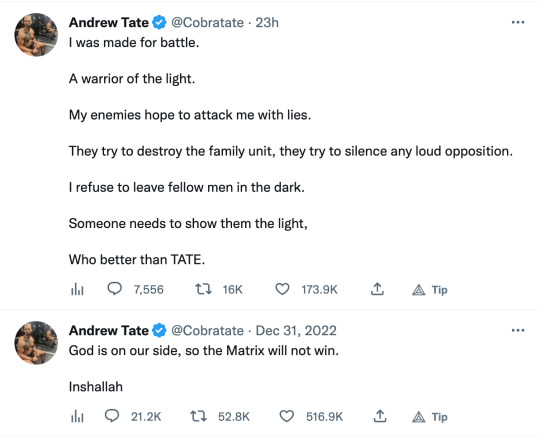
[Tate frequently alludes to metaphorical battles, and sigh, the 1999 film The Matrix, itself a metaphor for battle between truth and lies]
Tate is portrayed here not even as unstable and tragic, but as the rational outcome of a boy deprived of material wealth and his father. Whether intentional or not, Miller falls into a common pitfall to nearly all cultures -- a belief in the inevitability of male violence, one which almost always holds someone else responsible for a man's acts of violence, whether it's the system for not coddling him, women for not fucking him, or his parents for not teaching him to be a good man.
It wasn't always this way. The Ancient Greeks (misogynistic as they were, especially in Athens) valued small penises and sexual restraint as evidence of the essential rationality of men. Somewhere along the way, the cultural narrative has changed from 'men are always rational' to 'whatever men do is rational.'
In Miller's narrative, Tate's coming-of-age-story is paralleled, unsurprisingly, by that of his followers. However, these 21st century boys are not motivated by a broken home or a lack of material wealth, but instead and perhaps more insidiously, a system that is said to war against their very nature. These boys are facing feminism which has gone too far, anti-racism which has swung into reverse racism, and gay and gender-non-conforming men who stand to destroy all that is good and great about masculinity [shh, don't tell anyone tell them about Achilles and his *good friend* Patroclus].
In 2019, in an opposite corner of the internet, the YouTuber Natalie Wynn made a 30-minute video titled Men. Wynn is a transgender philosopher and commentator on gender politics, and she posted the video on her channel, ContraPoints, which has 1.65 million subscribers. In it, she lays out with surgical delicacy the ways she thinks feminists have failed to address what some now call “the masculinity crisis.” [...] But in Men, Wynn gently asks her progressive viewers to consider the possibility that men’s-rights activists’ concerns contain a nugget of truth: that the suffering of men is real, especially among those who were never high on any kind of ladder. Much feminist theory accounts for this, but many online feminists don’t. “Maybe the average man is also oppressed by the system the feminists call patriarchy,” Wynn says.
What the article neglects to mention is that Wynn is the child of a professor and a doctor, attended prestigious universities and started a PhD before becoming bored and dropping out. Wynn, firmly ensconced in the upper middle class, is very much part of the 'liberal elite.' Wynn has more in common with Elon Musk, fellow PhD dropout, than the average prole.
No one, feminists included, purports that no man has struggled ever, whether it's because of race, sexual orientation, disability, poverty, mental health, et cetera. However, no man suffers by virtue of being a man. Those who are 'never high on any kind of ladder' are not suffering by virtue of being men but for something else. For example, the suffering I experience by being a Black woman does not mean that I experience heterophobia because I happen to be straight and am suffering. I've suffered due to mental health, too, and also the general stresses of life, which escape no one. It's strange how we've all forgotten about the concept of intersectionality and instead try to pretend that women are hysterical and delusional, being the inherently irrational beings that we are and that, for example, white women having power over Black men in some instances means that patriarchy is as real as a dream on a dinner of bad cheese.
Andrew Tate isn't the first, and won't be the last, to seize on 'male suffering' as a rallying cry for violence. Suzanne Collins once described humans as “fickle, stupid beings with poor memories and a great gift for self-destruction,” and I fear she's right. Have we forgotten the translation of Mein Kampf (My Struggle)?
I rather dislike drawing parallels between disenfranchised groups lest it seem too much like a comparison, but I find the resemblances in the rhetoric eerie. Hitler's autobiography glorifies suffering, and how he claims it turned him into a genocidal anti-Semite (as well as xenophobic against the 'wrong kind' of white people). Mein Kampf is a tale of radicalization, of how Hitler claims he went from liberal to fascist.
One feels it again when one sees his photographs—and I recommend especially the photograph at the beginning of Hurst and Blackett’s edition, which shows Hitler in his early Brownshirt days. It is a pathetic, dog-like face, the face of a man suffering under intolerable wrongs. In a rather more manly way it reproduces the expression of innumerable pictures of Christ crucified, and there is little doubt that that is how Hitler sees himself. The initial, personal cause of his grievance against the universe can only be guessed at; but at any rate the grievance is here. He is the martyr, the victim, Prometheus chained to the rock, the self-sacrificing hero who fights single-handed against impossible odds. If he were killing a mouse he would know how to make it seem like a dragon. One feels, as with Napoleon, that he is fighting against destiny, that he can’t win, and yet that he somehow deserves to.
-- George Orwell's review of Mein Kampf (1940)
Further, Mein Kampf also displays a sneering attitude to what present-day manosphere influencers would refer to as 'beta males' and soy boys.
Hitler, because in his own joyless mind he feels it with exceptional strength, knows that human beings don’t only want comfort, safety, short working-hours, hygiene, birth-control and, in general, common sense; they also, at least intermittently, want struggle and self-sacrifice, not to mention drums, flags and loyalty-parades.
After a few years of slaughter and starvation ‘Greatest happiness of the greatest number’ is a good slogan, but at this moment ‘Better an end with horror than a horror without end’ is a winner. Now that we are fighting against the man who coined it, we ought not to underrate its emotional appeal.”
-- George Orwell's review of Mein Kampf (1940)
All this to say, I think Orwell was right and still is. Hitler didn't invent the glorification of a manhood of misery any more than Tate did. No wonder Tate and his ilk eschew soft fuzzy things like bubble baths, vegan diets, socialized healthcare, and makeup for men. The cultural script of the ideal man as a suffering, Christ-like warrior is incredibly pervasive, and that's partially why boys love Tate so much. He speaks a message that's subtly woven into our cultural cloth.
As Trumpers love to say when explaining their love for Trump, "He says out loud what we're all thinking but too afraid to say."
On a private jet, Tate taunts his brother, Tristan, for eating sushi. Eating “rice in a circle” will make men weak, Tate says, whereas his meal, fried chicken, makes men strong. “You know who eats sushi? Little fucking soy boys. Little fucking Democrats.”
I can't help but wonder if the distaste for protein sources that aren't meat amongst MRAs, specifically tofu and other soy-based products, is perhaps racist given that these are traditional foods in many Asian countries as well as the requisite anti-veganism (caring about the planet and cows is soft and fuzzy and therefore self-destructive).
The insistence that "boys don't cry" and "men are tough" isn't oppression. It's ensuring, and even grooming boys to grow into their roles as stoic oppressors. If we don't insist that they behave like they're meant to be on top of the food chain, they might decide they prefer a 'beta' life of veganism, cat-owning, and respecting women. The castration anxiety we manufacture in boys is the price they pay in order to benefit from patriarchy later on.
Tate’s saturation was so complete that he reached into the blue villages of New York City, where many boys in their bedrooms found his rude and ruthless evisceration of every sacred liberal value hilarious. Feminism, environmentalism, gluten intolerance, literature, Harry Styles, Lil Nas X — Tate assaulted all of these with pejoratives the boys themselves knew not to use.
Despite her best efforts to be 'fair', Miller describes a Tate who is not appealing to a disenfranchised class, but to those who aspire to bully whatever and whomever is not sufficiently male and therefore subhuman. 'Repeal the 19th' (the amendment which gave women the right to vote in the U.S.) is not the rallying cry of a disenfranchised group, but those who wish others (women) would quietly go back to being disenfranchised.
He told the boys they were naturally programmed to want to acquire wealth and to compete to become what he calls “top-tier men” and that, as men, they were evolutionarily superior to women — more rational, better drivers, better leaders. Most of the fans knew better, but that was the funny part: They concede it gave them an illicit boost. If you’re a teenage boy and feeling misunderstood, “it’s helpful to hear I’m meant to be stronger than a lot of my peers, that I’m meant to be better, bigger,” says Jacob, a senior at a public high school in Brooklyn. “It’s appealing to think that you’re more rational than 50 percent of the population, just because.”
There's no secret, no trick to his appeal. Tate makes men and boys feel powerful, just for existing. His rhetoric proves a high that they can't get enough of, one that they begin to feel entitled to.
Furthermore, the peeks at Tate's rhetoric that Miller includes, the more one wonders -- how can anyone who didn't enter with a total callousness for women and girls find this funny? To anyone with the barest shred of empathy, Tate's comments are sickening and enraging. However, in greater society, female-directed violence (despite the adorable videos of little boys insisting that it's wrong to hit girls) is a joke, and every boy knows the punchline.
Men often say in half-hearted defense, I don't think Andrew Tate is that bad. He's a bit distasteful, he's a bit sexist, yeah, but I don't think he's that bad. I can see you're really concerned, but it's not such a big deal, yeah?
Christian [who is, admittedly, 12] regards the Tate panic as a misunderstanding: “He makes a lot of jokes, and people take him out of context.” He sees Tate as “a little misogynist but not much much.”
The context, of course, is a culture that accepts and rewards misogyny.
To many guys, Tate's that friend who gets a bit sexist, a bit callous, a bit rapey after a couple of drinks. To many guys, they'd never do that stuff their crazy friend does, but that's just him. Many guys see Tate as a spectacle, a character, the circus, pure camp, no different from a particularly wild episode of RuPaul's Drag Race or the 'Birds Aren't Real' guy.
He is a character, but he is also Tate, and in interviews, he claims that he’s joking and that he’s dead serious.
They don't think his behavior is a threat to anyone's safety. After all, his only victims are women, who aren't really that important.
I'm an irrational woman, you see, affronted because I don't believe in the inevitability of male violence. I, and every woman who is disgusted by Tate, has refused to get the memo. How would we understand the joke? How on earth would we get the punchline? Women aren't funny.
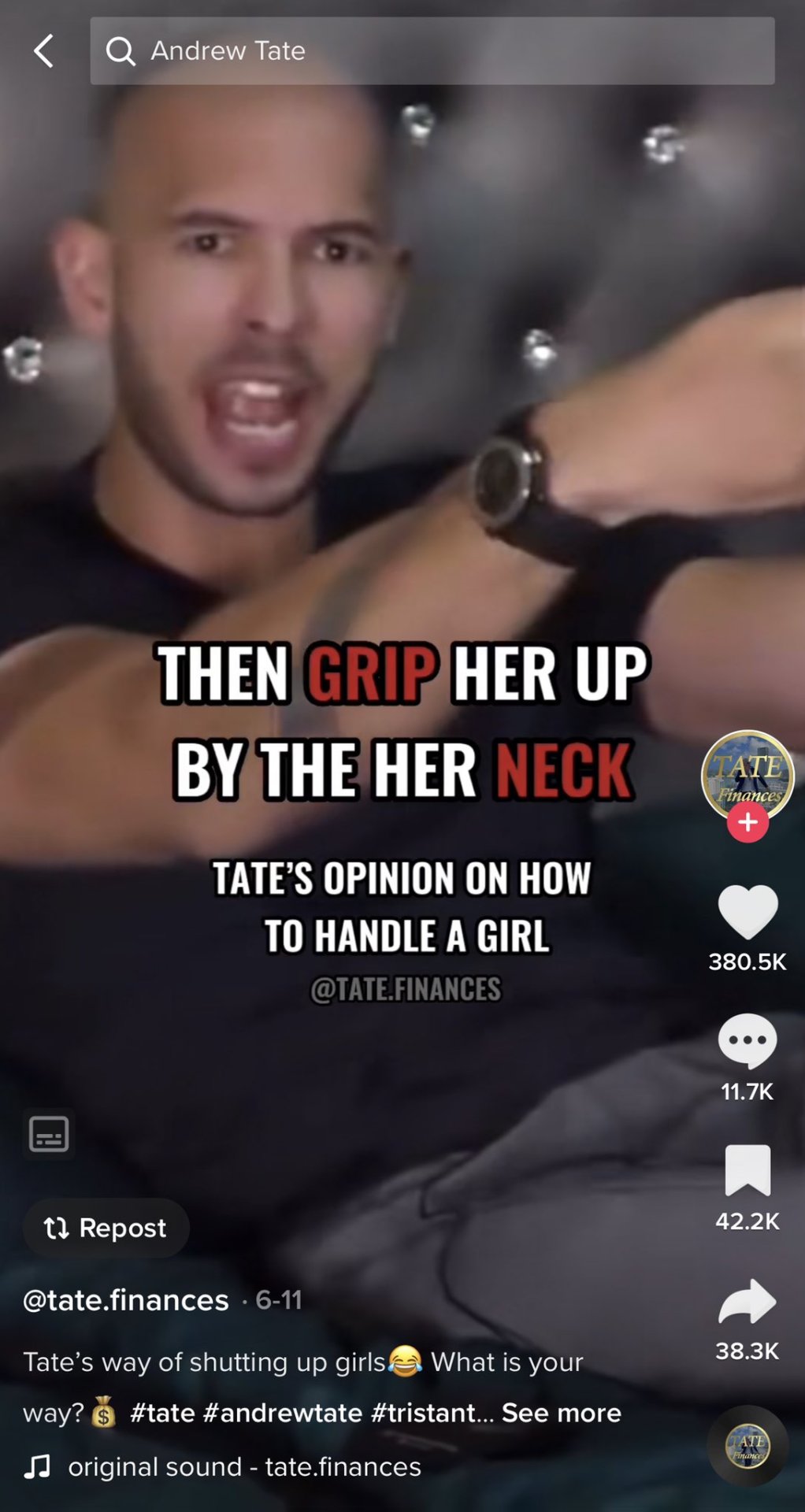
[The joke, for many, is not how ridiculous Tate looks in this still.]
The joke: women are objects, and you can own them. The joke: women are scum. The joke: women deserve abuse. Et cetera. Ad nauseam.
And when women get angry, when woman swear up a storm and curse and accuse Tate and the manosphere of spreading dangerous rhetoric and normalizing violence against us, we're irrational, because with the inevitability of male violence comes the inevitability of female complacency. Women are supposed to be happy to be abused, or, at least, neutral. To rail against misogyny is to break the paradigm, and what lies underneath isn't pretty.
Given the tribalism of teenagers, I can only imagine that whichever boy in the friend group displays an initial queasiness towards Tate is told to suck it up and join his friends in what they believe is a glorious journey into manhood, facilitated by leaving their mothers' arms and being transmuted by the transformational and ancient power of woman-hating.
The process of dehumanizing a group as a way to legitimize and
justify cruelty against its individual members is not something that porn producers invented. It has been a tried and trusted method adopted by many oppressors [...] Once the humanness of these individuals is collectively rendered invisible by their membership in a socially denigrated group, then it is that much easier to commit acts of violence against them.
-- Gail Dines, Pornland
Tate world is a bit like Pornland. In Tate world, the story is that women deserve abuse for refusing anything men desire [submission]. He advises 'disciplining' women for perceived misbehavior in the same way that one might smack the TV in irritation when it's not working properly -- although one would likely have more care for a pricey flatscreen than Tate has for women. If a dog owner treated their dog the way Tate recommends treating women, we'd call it animal abuse.
And yet, his young watchers laugh.
Boys entered Tate world through his most arresting clips — including those that suggest a violent hatred of women. In one TikTok that circulated untold millions of times, he describes what he would do as a pimp if a woman accused him of cheating: “Slap slap grab choke shut up bitch sex,” he said.
[...]
He had compared women to dogs and children. He said he preferred to have sex with 18- and 19-year-olds because they’ve “been through less dick.” He even appeared to endorse sexual slavery, once insisting on the Dave Portnoy podcast that a woman in a relationship “belongs” to the man, “and the intimate parts of her body belong to him.”
[...]
“Women have to want to work for you. Women have to want to obey you,” he explained. Tate compares himself to someone who “uses sex as a weapon” and a “reward.”
[...]
Tate said he had no use for a challenging woman. “All men want robots!” he insisted. “There’s no such thing as too submissive.” He seemed to be laughing, and his hosts, off balance, laughed along.
The distaste for a challenging woman and desire to punish her exorbitantly is unsurprising to anyone who's read Genesis, which tells the tale of a woman who failed to submit, a husband who obeyed his wife, and the destruction of Paradise. Misogyny is women's eternal punishment for disobedience. According to the Old Testament, men listened to us once, and it ruined everything.
And I will put enmity between thee and the woman, and between thy seed and her seed; it shall bruise thy head, and thou shalt bruise his heel.
Unto the woman he said, I will greatly multiply thy sorrow and thy conception; in sorrow thou shalt bring forth children; and thy desire shall be to thy husband, and he shall rule over thee.
And unto Adam he said, Because thou hast hearkened unto the voice of thy wife, and hast eaten of the tree, of which I commanded thee, saying, Thou shalt not eat of it [...]
-- Genesis 3:15-17, KJV
A warning to all would-be feminists, if you will. Even in the so-called secular West, we cannot escape this notion -- that woman-hating and women's perceived inferiority is divinely ordained. Tate is referred to as 'Top G[angster]', but his followers see him as no less than a god, sending down truths that match our worst cultural norms. Tate-ism is a religion.
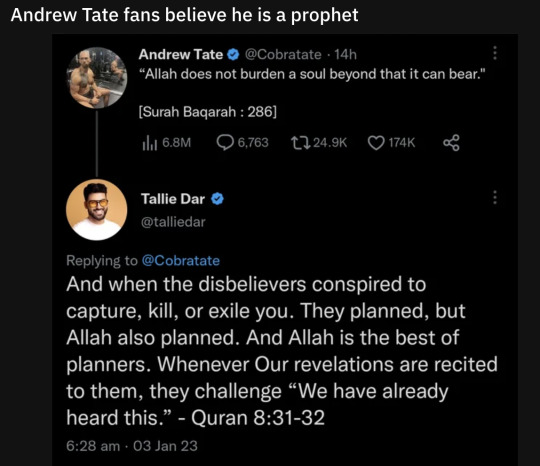
[These two lines in the Quran are in fact directed towards Allah.]
What's even more telling about that last quote from Tate in the indent, is the wording. "He had no use." A woman who dissents, even once in a while, is decidedly not an object, and thus cannot be used.
'No' is an uncomfortable proposition, and despite his glorification of struggle, Tate wants his suffering to be exclusively self-inflicted.
Just like snow-struck damsel-in-distress Kai in that lovely, fuzzy fairytale The Snow Queen (who becomes a raging misanthrope until he's rescued by his female friend), Tate's cold heart knows no love, no empathy, no compassion, no kindness. A human woman is of little 'use' to him.
The only good woman is a yes-woman. The only way a woman can be rational is if she is parroting everything a man says. Tate's supposed 'girlfriend' Sofiya epitomizes this as the ultimate NLOG meets traditional femininity.
On her Twitter, Sofiya posts endless tweets expressing love, loyalty, and support for Andrew Tate and his brother and attempting to 'disprove' the claims of human trafficking, even as the daughter of a Romanian MP comes forward, along with the occasional anti-LGBTQ or anti-vax messages, along with a undercurrent of white supremacy (she's also anti-seed oils. I did not know that was a thing before now).
The appeal to teenage boys is obvious: wealth, fame, Bugattis, and a beautiful yes-woman who worships at his feet. In one of Sofiya's Tiktoks, the camera cuts between her staring adoringly up at Tate and Tate, expression obscured by his dark sunglasses utterly still and stoic. Sofiya is perfectly submissive towards him, just how Tate likes his women. The message is clear. Top G is demigod-prophet, and to be Tate-Pilled is to be one of his holy disciples. Time and time again, humans (especially men) are shown to be highly susceptible to magical, religious thinking. This is beyond mere-celebrity worship.
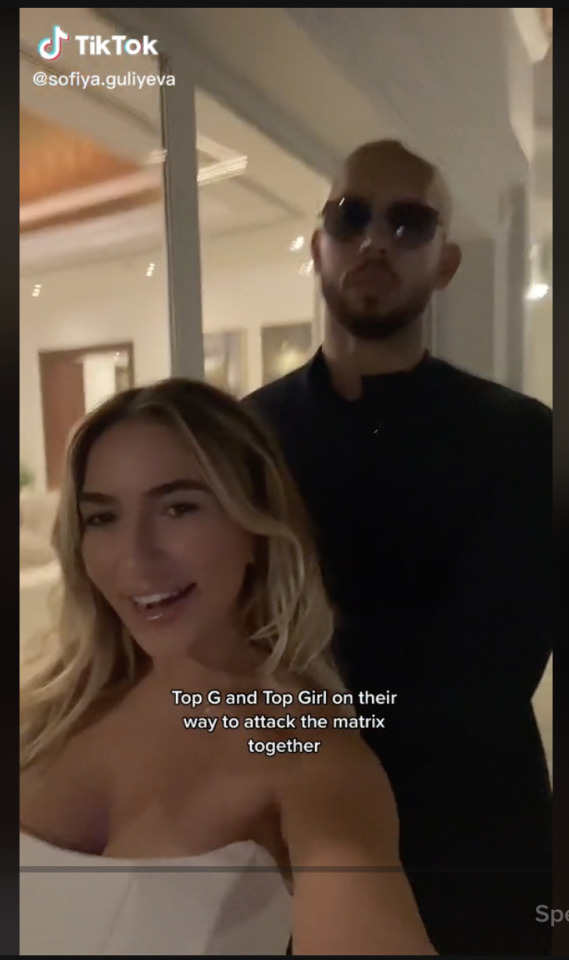
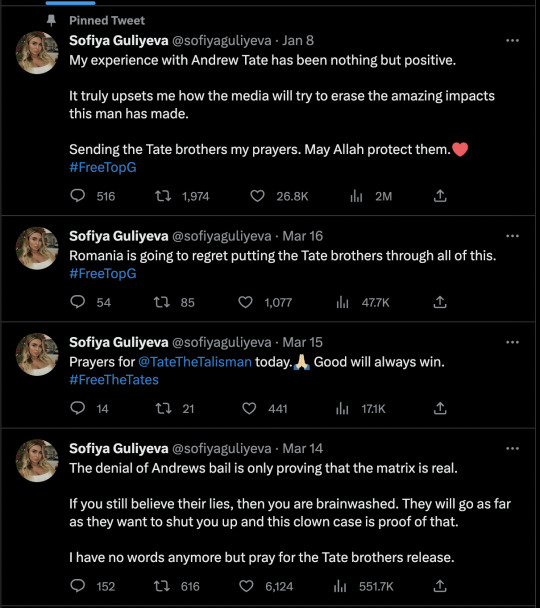
Sofiya's worship at the altar of Tate and performance of ideal womanhood has garnered her perhaps not respect but praise, validation, and effusive compliments from fellow Tate fans.
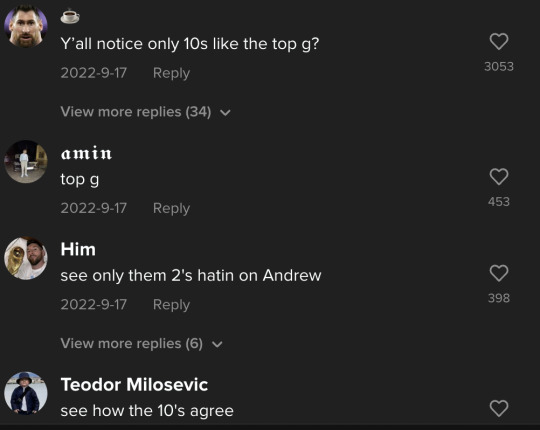
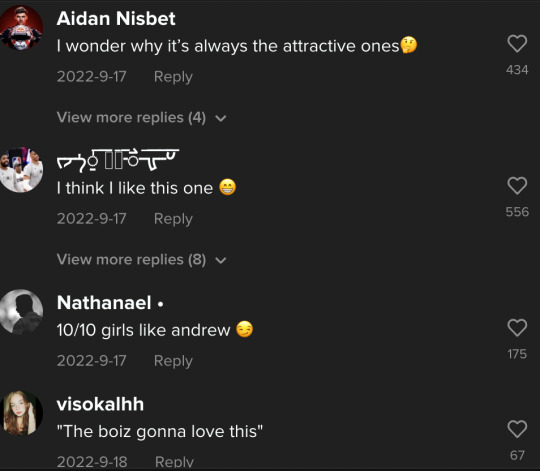
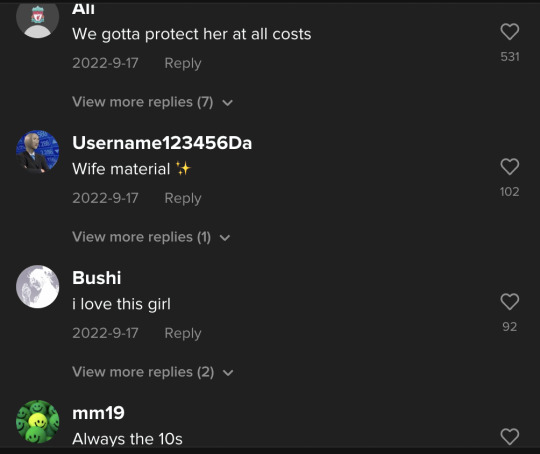
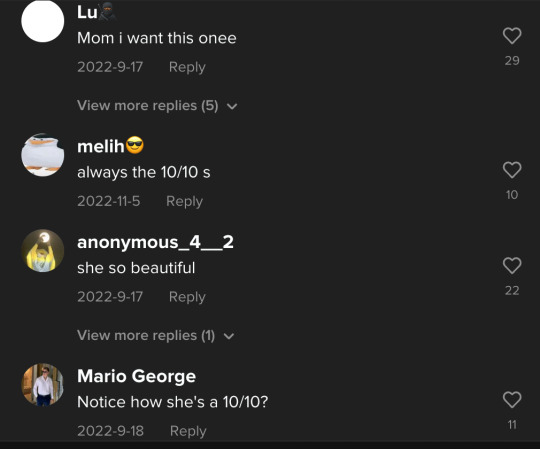
[ad nauseam]
Despite the overall negative responses of women and girls to Tate (As Miller says, "Girls hate Tate."), his followers have convinced themselves that despite making up a majority, dissenters don't matter by using the age-old smack-down to tell women they don't matter: 'You're ugly.' In this paradigm, beauty is seen as an indication of a woman's inner virtuousness -- here, her adherence to ideals such as submission.
Unsurprisingly, this isn't new or inventive.
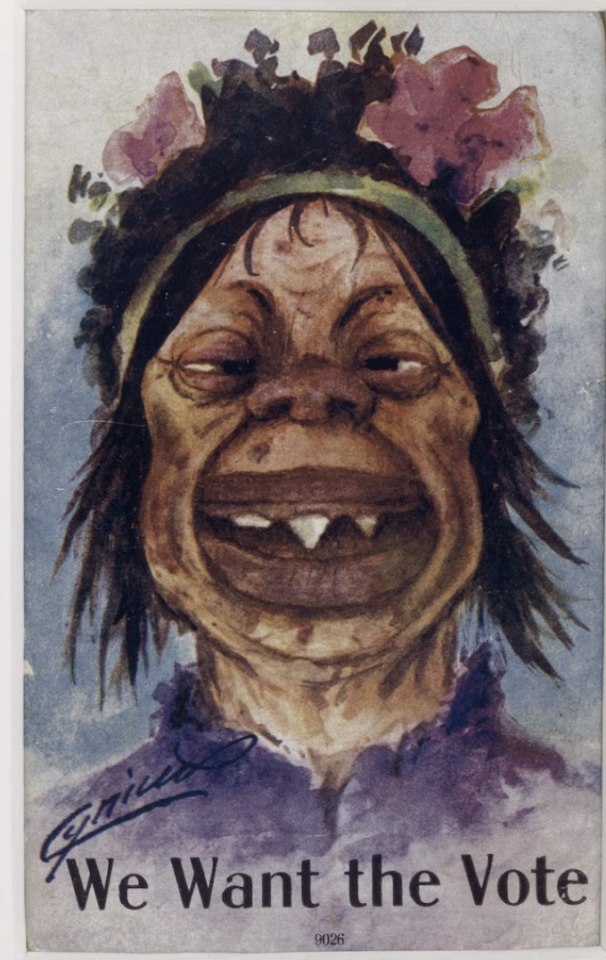
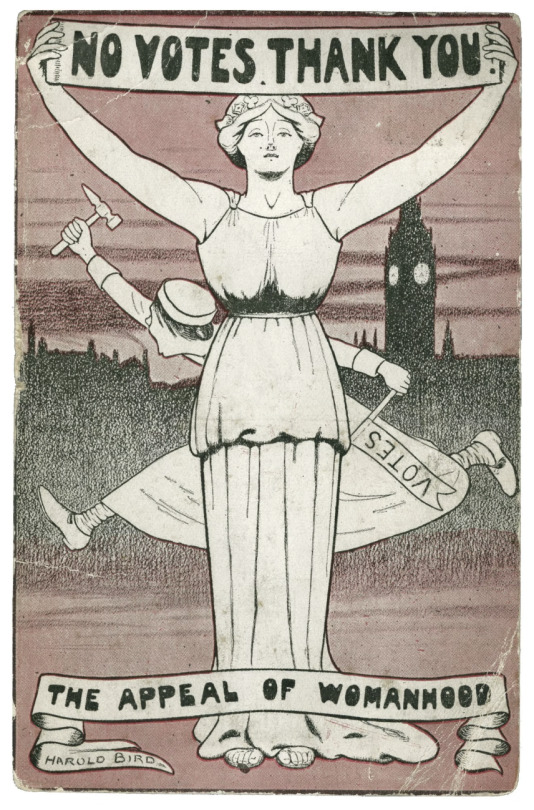
[The ugly suffragette vs the beautiful and virtuous ideal woman.]
Ironically, the reason Sofiya (and a few other women) slavishly follows Tate is for the same reason men and boys do: for the endless gravy train of validation. Tate's boys are Not Like Other Boys (NLOB), not like the betas or the cucks or the simps or the white knights or the soyboys. By following 'Top G,' you, too, can become one of the chosen ones.
Many insist that becoming a devotee of Tate alleviates depression as is an excellent form of self-help. Despite this, Tate is not good for teenage boys, and the more self-aware ones know it.
When he was about 13, he spent 18 months down the alt-right rabbit hole before he pulled himself out. Jacob thinks Tate’s influence on young men is “horrible.”
...
“Hate begets hate begets hate,” Jacob tells me.
...
It’s a kind of arrogance, or at least a misapprehension, to believe that you can take the good without the bad, two different boys told me. One put it this way: “They think they’re taking the valuable stuff and leaving the garbage. But I don’t think they’re successful. People are much more susceptible than they like to think they are.”
Even though Tater Tots believe that no one can tell what their current media consumption habits are, women and girls pick up on the shift in rhetoric often enough.
Besides Tate's chilling rhetoric, there are also his actions.
[...] A sex tape [...] shows Tate hitting a woman with a belt. In the tape, Tate, kneeling in bed fully clothed, demands that the woman say she loves him before he pounces on her and begins thrashing her. (The woman later made a video saying it had been “pure game” and they were still friends.) Seven years later, the real reason for Tate’s removal would come to light: At around the time of the Big Brother taping, one of the women he hired had charged him with rape and another with assault.
[...]
Two days later, Tate and Tristan were jailed in Romania. They purportedly lured women to that country, then persuaded or forced them to work for their OnlyFans operation, “transform[ing] them into slaves,” according to Romanian prosecutors’ documents viewed by Reuters. In these documents, a Moldovan woman accused Tate of raping her twice and an American woman said she had been kept in a house manned by armed guards, her movements tracked by video cameras. (In addition to the accusations of human trafficking, organized crime, and rape, Romanian authorities said they are investigating the Tates for money laundering.
-
I've come across a few male social media influencers who promote a kind of 'third way' dudespace that's less reliant on the misogynistic cliches. The Good Men Project comes to mind.
Guys today are neither the mindless, sex-obsessed buffoons nor the stoic automatons our culture so often makes them out to be. Our community is smart, compassionate, curious, and open-minded; they strive to be good fathers and husbands, citizens and friends, to lead by example at home and in the workplace, and to understand their role in a changing world.
-- The Good Men Project About Page
Despite this, I've never heard of groups of teenage boys going for these types of blogs or influencers. Is it because of the unfamiliarity of the rhetoric? There seems to be a consensus that masculinity without violence is somehow neuter.
Yet, there remains a pervasive 'counterargument' that boys only become swept up in the manosphere because of a lack of good male role models.
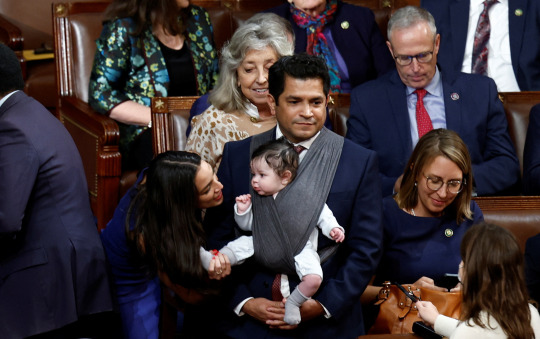
[Jimmy Gomez (D-CA)'s Dads Caucus, 2023]
Many would protest that Jimmy Gomez is too beta (soft, fuzzy, socialist) and not very masculine (warrior, struggle, suffering) in this picture to be someone for young boys to look up to -- despite sitting in the U.S. House of Representatives, a position of immense power in the grand scheme of things. The problem isn't a lack of male role models who aren't foaming at the mouth with dangerous and violent rhetoric, it's the belief that the death of unnecessary struggle and violence is the death of men. For men to be men it is essential to patriarchy that they possess at least the threat of violence.
If a single generation of men collectively decided women are rational people who deserve empathy, misogyny is depraved, and struggle and suffering are nothing to strive for, there might be an end in sight. That's why patriarchy needs men like Tate.
#bso glad people are talking about this#but the mainstream discourse is too shallow#tw andrew tate#i'm so sorry about the jumpscare in the middle#wrote this literally 1 year ago#misogyny
0 notes
Text
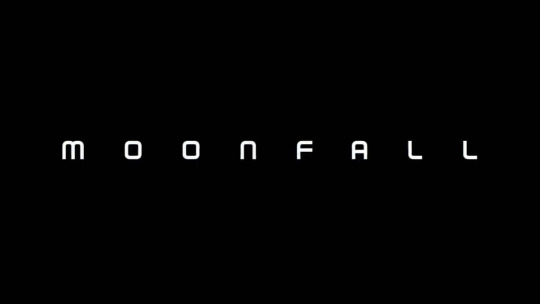
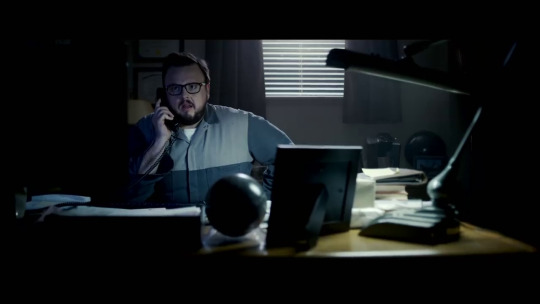
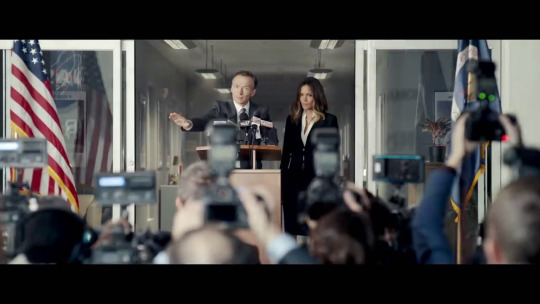
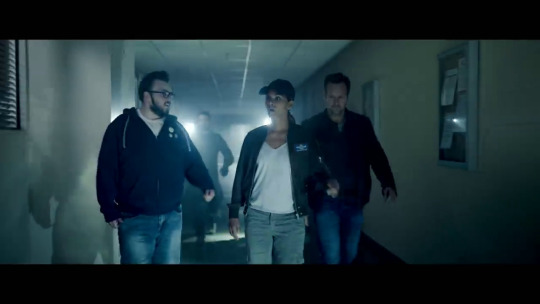
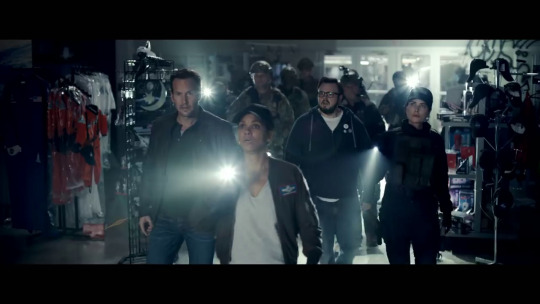
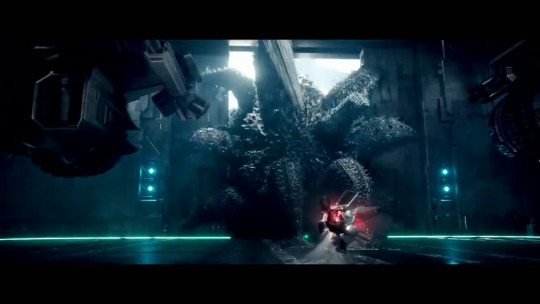
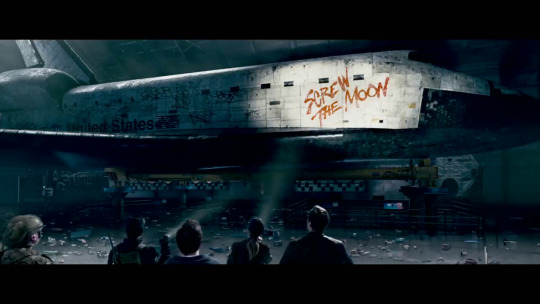
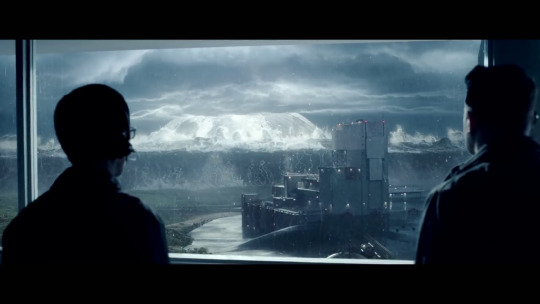
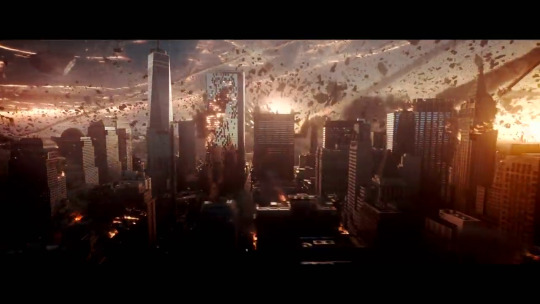
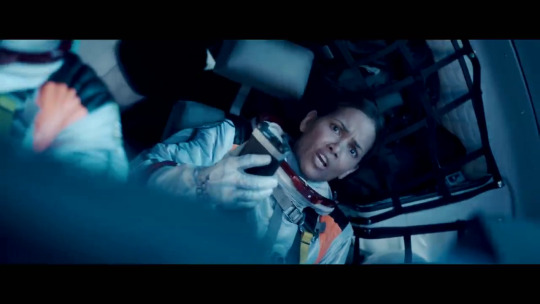
Moonfall (2022)
Film review #573
Director: Roland Emmerich
SYNOPSIS: K.C. Houseman, a conspiracy theorist, uses a research telescope to confirm his suspicions that the moon's orbit is changing and moving closer to Earth, and will eventually collide with it. NASA eventually confirm the findings and mass panic ensues. They send a rocket up to the moon to investigate, but the shuttle is attacked by a mysterious entity. Brian, an astronaut who was fired in disgrace after a space mission he was on was similarly attacked and no one believed him, leaving his reputation destroyed, is now tasked with one more mission to try and stop the moon from destroying the Earth...
THOUGHTS/ANALYSIS: Moonfall is a 2022 sci-fi disaster film. The plot, unsurprisingly, revolves around the moon falling to Earth. Conspiracy theorist K.C. Houseman, who believes that the moon is a artificial superstructure, and its orbit is decaying. It turns out he is right, and when NASA confirms it, mass panic sets in across the world. A shuttle mission to investigate the moon is attacked by a strange entity, and destroyed. It turns out to be the same entity former astronaut Brian Harper claimed attacked his mission ten years before, but as no one believed him, and was sacked and his reputation tarnished. His former crewmate Jocinda Fowler, who is now deputy director of NASA, recruits him to lead one more mission to the moon to try and correct the moon's orbit before it collides with the Earth. The film is quite simply a combination of the films Armageddon and Independence Day. In fact, the director Roland Emmerich also directed the latter, so I'm pretty sure it was deliberate. The realism of a disaster film just doesn't work well with the plot about aliens and rogue AI and whatnot, and a lot of stuff is just skimmed over. A lot of the plot points make very little sense, such as why the A.I....thing would just hide in the moon and try to bring it down, rather than attack the planet directly if that it was aiming to do. There doesn't feel like there's much of an attempt for the film to carve out its own identity, rather just picking bits from what previous films have done successfully. Then again, the sheer cheesiness of the plot and setups might make for mindless, entertaining viewing, but it's definitely hard to take it seriously.
The characters are all fairly cookie-cutter with nothing really distinguishable. Brian and Jocinda are just very standard lead roles, and K.C. Houseman provides the comic relief with one-liners that aren't memorable or really funny. The trailer for the film has him respond with a quip after every scene or serious moment without rest, and while it's okay to lighten the mood once in a while, doing this constantly really stops the suspense and story dead in its tracks. The characters also have their own families who are trying to get to safety, providing a perspective from "ordinary" people on the disaster that is unfolding: again, just like Independence Day. None of these characters stand out in particular, and their scenes feel like they're there to pad out the runtime. With the film coming in over two hours and ten minutes, the film definitely feels padded.
When the mission makes it to the inside of the Moon, they discover the inside is a Dyson Sphere: a man made structure with a white dwarf star housed inside to power it. We are also treated to a lengthy exposition about how humans once existed on another planet but were destroyed by a rogue A.I., so these superstructures were sent to potential habitable planets to populate them with the DNA of human life, but the A.I. thing (I don't really know what it is) has now found Earth and is causing the moon to fall to destroy the humans. It's nothing you haven't heard or seen before, and lumping in all this stuff near the end does detract from the disaster theme a little. The ending feels like it's very much on auto-pilot, as Brian encounters a "good A.I." or something, and somehow now knows how to pilot around the superstructure to destroy the bad A.I., which ruins any kind of tension in the climax. In terms of effects and CG, it's actually not too bad: you get a good sense of the scale of destruction in the landscape shots, but the effects of the Moon's effect on gravity is entirely inconsistent throughout, and it can mostly be explained away as it's for the purpose of the plot. Anyway, Moonfall is a mash-up of what you've seen before, with Roland Emmerich doing exactly what you expect in producing an over-the-top disaster film with a very typical cast of characters. It's plot is all over the place, and is completely implausible most of the time. It is a brainless, cheesy sci-fi film that may serve as a silly ride that might entertain, but you're going to struggle to believe anything in the movie is plausible.
1 note
·
View note
Text
For two decades George Jacob Schweinfurth was public enemy #1 in Rockford, IL: a smooth-talking charlatan who made a mockery of religion, despoiled innocent women, and stole money with his hypnotic powers. Tune in this week for the amazing tale of the man they called "ten times worse than Brigham Young."
Transcript, sources, links and more at https://order-of-the-jackalope.com/holy-ghost-babies/
Key sources for this episode include Dan Visel's article "Illinois Jesus" from the Paris Review; Alex McCleneghan's Six Years in Heaven: The Amazing Story of George Jacob Schweinfurth, The False Christ; and contemporary newspaper reports and magazine articles.
Presented by #13 (Dave White) Artist. Lover. Social Media Unfluencer. Acknowledged authority on lucrative bogs. Dave White is all this and more. But most days he's a web developer, graphic designer, and cartoonist. He lives in Pittsburgh with his wife, his two cats, and his crippling obsession with strange trivia.
This week we're cross-promoting with Oldie But A Goodie! Join Sandro Falce and Zach Adams as they embark on a journey through an entire year of cinema, reviewing one film per episode in the week they originally came out.
Discord: https://discord.gg/Mbap3UQyCB
Facebook: https://www.facebook.com/orderjackalope/
Instagram: https://nstagram.com/orderjackalope
Reddit: https://www.reddit.com/user/orderjackalope
Tumblr: https://orderjackalope.tumblr.com
Twitter: https://twitter.com/orderjackalope
Email: [email protected]
Part of the That's Not Canon Productions podcast network.
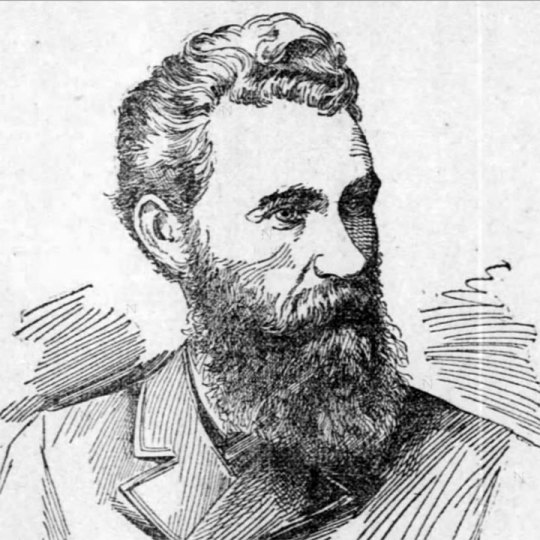
CONNECTIONS! Perhaps unsurprisingly, Schweinfurth's Perfectionists had frequent conflicts with the other cults and fringe religous movements that proliferated in 1890s Chicago. Scottish faith healer John Alexander Dowie (from Series 6's "Marching to Shibboleth") attacked Schweinfurth as a false Christ and actively tried to peel off his followers. Hollow Earth messiah Cyrus Teed (from Series 4's "We Live Inside") was mostly just angry they'd stolen his church's name.
0 notes
Text
Devil Judge - Episode 5 (i’m not okay)
Right! So review timeeeee this is a long one lol
I love the opening. Facts
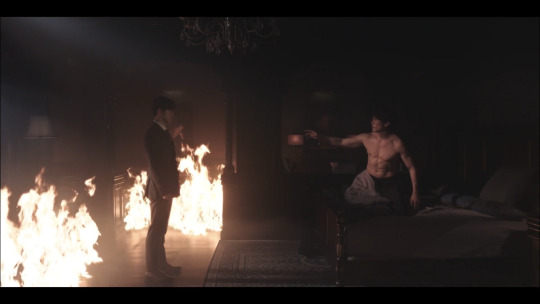
This man clearly carries a lot of burden but he loves his brother so much.
Watching the first part made me wonder if they are trying to make the viewers think if he really killed his brother and is guilty, hence the nightmares of his dead brother standing in the middle of his room, or is it because he feels guilty that he was only able to save Elijah and himself… either way they kinda show us that there is guilt somewhere in him.
When Elijah comes to his room she says about him not waking up like that before, could mean that Ga On’s presence is worsening his guilty conscious, or from my perspective, i just think that 10 years worth of forcibly trampled down trauma is threatening to explode.
Devil judge or not, no one can control that amount of severe trauma for long.
Next point! Kim Ga On is so sweet with a kind heart, he initially joined the court to spy on Yohan but just based on him clawing open unhealed wounds, he feels so deeply for Yohan to the point he is willing to quit the bench just so Yohan doesn’t have to look at him and see his brother’s face every time.
He tries to relate to Yohan on an emotional level that they both feel due to losing their loved ones. But a few things that I noticed is that when Yohan says,
“I certainly don’t want to hear that from someone that looks like him”
Again, being called the devil judge or not, but having someone who shares the same face as his brother accusing him of killing the said brother has to hurt deep down.
2. “I wonder how much you’ve discovered”
To me, i think that Yohan knew from the beginning that Ga On was looking into him, and yet he has Ga On in a place where Bambi himself admits to it.
3. “I don’t remember asking you to understand me”
I feel like he is intentionally pretending to push Ga On away because he knows that Bambi will do the exact opposite. It is literally in Ga On’s blood to always try and sympathise with anyone who has any sort of emotional baggage. He knows he can lure Ga On more towards him if he pushed the right buttons.
One part that stuck to me the most is when Ga On says
“hunters mask their scent completely, until the time is right”
Could it be foreshadowing?
It could hint towards him fooling Ga On to believing him until it is too late for Bambi to realise because well, Ga On falls for any heartbreaking story.
But at the same time it is also similar to the way Yohan is so close with the rich socialites to win their trust until the time is right for him to finally reveal that he is in fact a hunter and they’ve been his prey all along.
When Ga On leaves Yohan says that “it’s weird because I’ve never experienced that before”
That, being another human being connecting to him on such a deep emotional level and that’s something he hasn’t felt for almost ten years.
The way he talks about Ga On relating to him with an expression of awe makes me think that it could also be a fact as to why Yohan has this obsession with Ga On.
The minister’s interview was a clever way to show the people that despite being a mother she is a person who has her duty towards the country as a priority but also wanting to make the public question Yohan’s morals.
Please look at his fond little smile,
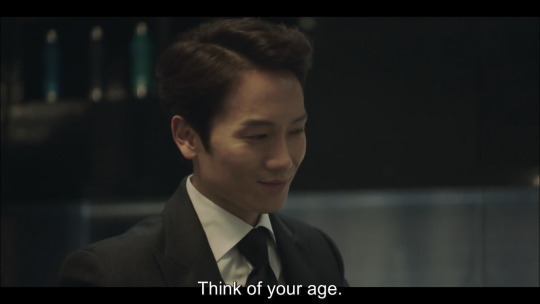
it’s a genuine reaction to Ga On tricking him into eating proper food by mentioning wrinkles and his age 💀 but also, signs to say that the little annoying pest is growing on him.
The scene with Ga On and Soo Hyun, they talk about the fire and there’s one line that Soo hyun says,
“The list of attendees to the ceremony was covered up, that’s not something Kang Yohan could’ve done 10 years ago. That takes controlling the press and prosecution”
A clear indication that someone who held power over both media and the prosecution was involved in the accident.
Everything Ga On has seen so far after he joined the live show has terrorised him so much but he is still worried about Soo Hyun because he has seen things that she hasn’t.. even when she’s a cop.. even when the reason she became a cop in the first place is because she want to help him and to keep him out of trouble.
Their bond is so pure and cute.
THE TRIAL
The beginning was so cute with the sweetest welcome back to Ga On and then there’s Yohan giving him a fond smile as if Ga On was actually on death’s doorstep and not snooping around his house arguing with a nanny about not being sleeping beauty..
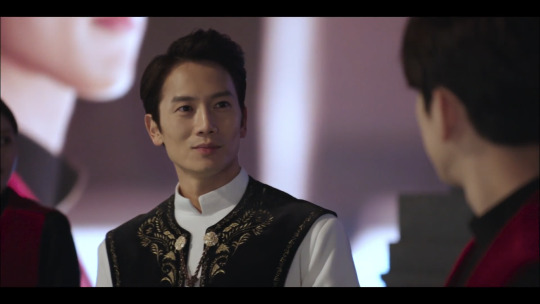
The case was a set up from the get go. It was just a trap from the beginning to push Yohan to a corner.
They wanted him to have no where to turn to when prosecution suggested “physical castration” (gross) because if he gave into the requested sentence,
they would very easily twist it into making him look like a sadistic monster and if he didn’t give in and went with the 20 years of prison time requested by the defendant,
that would make him look like just another person who doesn’t bother with taking people’ opinion into consideration. Which would make his own statements from the first episode wildly contradicting to what he went with.
Even the stupid lawyer tries so hard to push him to this corner by repeating “this is what the majority wants” but Kang Yohan is definitely smarter than they give him credit for because he puts the pieces together as soon as Jung Sun Ah sets foot inside the court room.
I love that Ga On as a judge as come to a point where he genuinely relied on Yohan as to what they were going to do instead of directly challenging his authority like he had done in the first case. Another sign that Ga On is starting to trust his boss.
Jung Sun Ah thinks! That she has him helpless but then this man turns the whole game upside down. (Even here, it’s really just a game in the name of justice, it is a power play between two sides)
If the minister and Jung Sun Ah thought they were a step ahead of Yohan, he definitely proved that he is ten steps ahead of them when he gave that sentence.
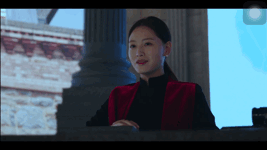
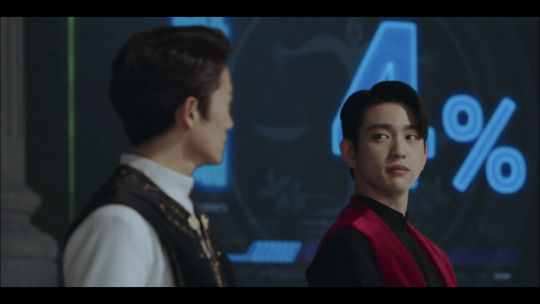
I completely adore the trust Ga On and Jin Joo has on their boss. Especially the way Ga On shares a real relieved smile with Jin Joo and the way he looks so relieved that things weren’t going to be as bad as he thought.
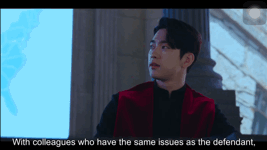
Teen Ga On was definitely a delinquent. The sight is just ✨
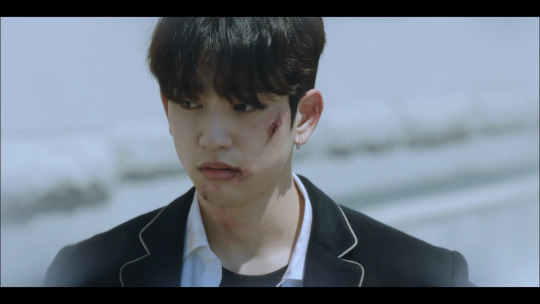
Another important point is that just when he learns to trust his boss, now he is struggling,
Because from one side there’s Kang Yohan asking him is he’s going to stand by him or stand against him,
And on the other hand there’s the Chief Justice asking him to choose between being an accomplice or an informant.
They’re both essentially asking him to pick a side and it looks like they’re pulling him back and forth between themselves. He’s struggling because as much as he wants to stand by Yohan, he can see that Yohan’s approach to justice is being adapted by the public,
For an example when those three kids were playing, it gives him a notion that the barbaric flogging system is now being used as a playing method by kids.. kids. It genuinely seemed to scare him that the way those kids were laughing and smiling while playfully hitting the small boy.
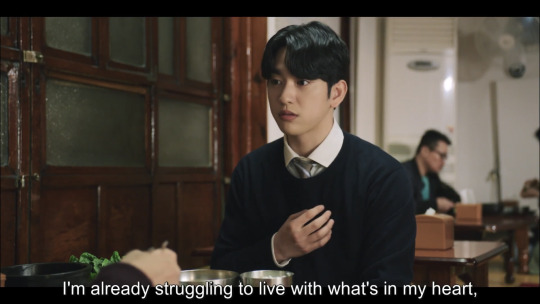
Kim Ga On is shown as this impulsive, level headed judge with a black and white sense of Justice but he too carries a lot of pain and burden similar to Yohan. But in his case, he’s being put on the spot between the two sides, eventually it will be him who has to face the consequences if he chooses the wrong side.
And being on the wrong side of Kang Yohan doesn’t really seem to be the smartest thing at the moment.
Going back to Kang Yohan and Kim Ga On, i like the way Bambi calls Yohan out for implying that being a monster is better than being a victim when he’s not brave enough to face his own pain.
That genuine shock on Yohan’s face is enough to show that Kim Ga On is really out there pulling out this man’s traumas one by one like he’s pulling out grass from the ground.
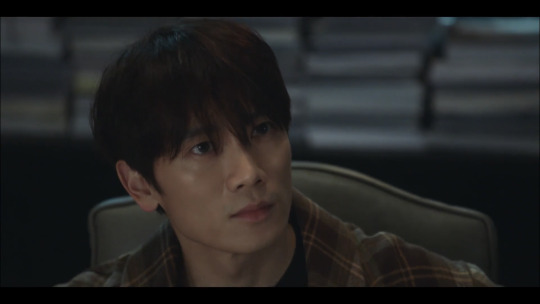
Again it shows how much Yohan is suffering inside because ultimately, that mansion is just a giant nightmare for him.
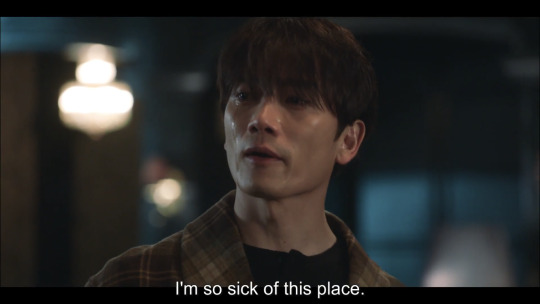
JUNG SUN AH/KANG YOHAN
first of all.
CONSENT!
i felt bad for Yohan.
But Jung Sun Ah is really obsessed with him to the point she jumped from the second floor just because he said he to, when Yohan came to a place of power, she worked herself to her own place of power. Her obsession with him runs too deep.
Tomorrow’s episode is already making me nervous because i feel like Jung Sun Ah is going to use Soo Hyun to drive a wedge between Yohan and Ga On.
If he did his homework on Ga On. I’m sure she has done hers as well.
More or less, Episode 5 was like the calm before the storm.
Unsurprisingly, i hate storms.
If you’ve made it this far, thank you for listening to me ranting.
Please send help
#im jaeboem#got7 jaebeom#mark tuan#got7 mark#jackson wang#got7 jackson#park jinyoung#got7 jinyoung#choi youngjae#got7 youngjae#bambam#got7 bambam#kim yugyeom#got7 yugyeom#he is psychometric#the devil judge#kpop#kpop industry#kpop music#kpop idols#kdrama#not by the moon#hard carry#got7#ahgase#kim gaon#jinson#markjin#jj project#rants
64 notes
·
View notes
Text

Travis has had both boyfriends and girlfriends since high school. But when his coworkers discovered his dating history at a board game night, they told him he couldn’t be bisexual. “Bi men don’t exist,” they said. “You’re just a confused gay guy.” Travis, 34, had brought his girlfriend with him that night, but they started calling her his “roommate” after they found out he was bi.
Santiago got an even harsher reaction when he came out to his family. “‘Bisexual’ is just code for insincere gay man” is how he said one of his relatives reacted. “He didn’t use the term ‘gay man,’” 24-year-old Santiago told me, “but I won’t repeat slurs.”
In the past couple of months, I’ve heard dozens of stories like these from bisexual men who have had their sexual orientations invalidated by family members, friends, partners, and even strangers. Thomas was called a “fence-sitter” by a group of gay men at a bar. Shirodj was told that he was “just gay but not ready to come out of the closet.” Alexis had his bisexuality questioned by a lesbian teacher who he thought would be an ally. Many of these same men have been told that women are “all a little bi” or “secretly bi” but that men can only be gay or straight, nothing else.
In other words, bisexual men are like climate change: real but constantly denied.
A full 2% of men identified themselves as bisexual on a 2016 survey from the Centers for Disease Control, which means that there are at least three million bi guys in the United States alone—a number roughly equivalent to the population of Iowa. (On the same survey, 5.5% of women self-identified as bisexual, which comes out to roughly the same number of people as live in New Jersey.) The probability that an entire state’s worth of people would lie about being attracted to more than one gender is about as close to zero as you can get.
But the idea that only women can be bisexual is a persistent myth, one that has been decades in the making. And prejudice with such deep historical roots won’t disappear overnight.
👬👫👬👫
To understand why bisexual men are still being told that their sexual orientation doesn’t exist, we have to go back to the gay liberation movement of the late 1960s. That’s when Dr. H. Sharif “Herukhuti” Williams, a cultural studies scholar and co-editor of the anthology Recognize: The Voices of Bisexual Men, told me that male sexual fluidity got thrown under the bus in the name of gay rights—specifically white, upper-class gay rights.
“One of the byproducts of the gay liberation movement is this…solidifying of the [sexual] binary,” Herukhuti told me, citing the Harlem Renaissance of the 1920s as a pre-Stonewall period of relatively unstigmatized sexual fluidity.
Four decades later, the gay liberation movement created a new type of man—the “modern gay man,” Herukhuti calls him—who was both “different from and similar to” the straight man. As Jillian Weiss, now the executive director of the Transgender Legal Defense Fund, wrote in a 2003 review of this same history, “gays and lesbians campaigned for acceptance by suggesting that they were ‘just like you,’ but with the single (but extremely significant exception) of [having] partners of the same sex.” Under this framework, attraction to a single gender was the unifying glue between gay men, lesbians, and straight people—bisexual people were just “confused.”
Bisexual people realized that they would have to form groups and coalitions of their own if they wanted cultural acceptance. But just as bisexual activism was gaining a foothold in the 1980s, the AIDS crisis hit, and everything changed—especially for bisexual men.
“AIDS forced certain bisexual men out [of the closet], it forced a lot of bisexual men back in, and then it killed off a number of them,” longtime bisexual activist and author Ron Suresha told me.Those deaths hindered the development of male bisexual activism at a particularly critical moment. “A number of men who would have been involved and were involved in the early years of the bi movement died—and they died early and they died quickly,” bisexual writer Mike Syzmanski recalled.
The AIDS crisis also gave rise to one of the most pernicious and persistent stereotypes about bisexual men, namely that they are the “bridge” for HIV transmission between gay men and heterosexual women. As Brian Dodge, a public health researcher at Indiana University, told me, this is a “warped notion” that has “never been substantiated by any real data.” The CDC, too, has debunked the same myth in the specific context of U.S. black communities: No, black men on the “down low” are not primarily responsible for high rates of HIV among black women.
For decades, bisexual men have been portrayed—even within the LGBT community—as secretly gay, sexually confused vectors of disease.
In 2016, bisexual men are still feeling the effects of the virus and the misperceptions around it.
“We’re still underrepresented on the boards of almost all of the national bisexual organizations,” Suresha told me, referring to the fact that women occupy most of the key leadership positions in bisexual activism. And in a new, nationally representative study of attitudes toward bisexual people, Dodge and his research team found that 43% of respondents agreed —at least somewhat—with the statement: “People should be afraid to have sex with bisexual men because of HIV/STD risks.”
For decades, bisexual men have been portrayed—even within the LGBT community—as secretly gay, sexually confused vectors of disease. Is it any wonder that they are still fighting to shed that false image today? It’s hard to convince people that you exist when they barely see you as human.
👬👫👬👫
It’s not that bisexual women have it easy. Both bisexual men and women are much less likely than gay men and lesbians to be out of the closet, with only 28% telling Pew that most of the important people in their life know about their orientation. Collectively, bisexual people also have some of the worst mental health outcomes in the LGBT community and their risk of intimate partner violence is disturbingly high. Bisexual people also face discrimination within the LGBT community while fending off accusations that their orientation excludes non-binary genders. (In response, bisexual educator Robyn Ochs defines “bisexuality” as attraction to “people of more than one sex and/or gender” rather than just to “men and women.”)
And on top of these general problems, bisexual women are routinely hypersexualized, stereotyped as “sluts,” dismissed as “experimenting,” and harassed on dating apps. Their bisexuality is reduced to a spectacle or waved away as a “phase.”
But it is still bisexual men who seem to have their very existence questioned more often.
Suresha pointed me to a 2005 New York Times article with the headline “Straight, Gay, Or Lying? Bisexuality Revisited,” the fallout of which he saw as “a disaster for bi people.” The article reported on a new study “cast[ing] doubt on whether true bisexuality exists, at least in men.” The study in question measured the genital arousal of a small sample of men and found, as the Times summarized, that “three-quarters of the [bisexual male] group had arousal patterns identical to those of gay men; the rest were indistinguishable from heterosexuals.”
“It got repeated and repeated in all sorts of media,” Suresha recalled. “People reported it in news briefs on the radio, in print, in magazines, all over the place.”
As the National Gay and Lesbian Task Force noted in its response to the article, the original study had some clear methodological limitations—only 33 self-identified bisexual men were included and participants were recruited through “gay-oriented magazines”—but the Times went ahead and reported that the research “lends support to those who have long been skeptical that bisexuality is a distinct and stable sexual orientation.”
“Show me the quest for scientific proof that heterosexuality exists. It begins and ends with even just one person saying, ‘I’m straight.’” — Amy Andre, Huffington Post
The article fueled the devious narrative that male bisexuality was just homosexuality in disguise. The lived experiences of bisexual men don’t support that narrative—and neither does science—but its power comes from prejudice, not from solid evidence.
And unsurprisingly, the 2005 study’s conclusions did not survive the test of time. In fact, one of the co-authors of that study went on to co-author a 2011 study which found that “bisexual patterns of both subjective and genital arousal” did indeed occur among men. The New York Times Magazine later devoted a feature to the push for the 2011 study, briefly acknowledging the paper’s previous poor coverage. But many in the bisexual community were unimpressed that the scientific community was still being positioned as the authority on the existence of bisexual men.
“Show me the quest for scientific proof that heterosexuality exists,” Amy Andre wrote on the Huffington Post in response to the feature. “It begins and ends with even just one person saying, ‘I’m straight.’”
👬👫👬👫
One of the most tragic things about society’s refusal to accept bisexual men is that we don’t even know why it is still so vehement. Dodge believes that his new study offers some hints—the persistent and widespread endorsement of the HIV “bridge” myth is alarming—but he told me that he would need “more qualitative and more focused research” before he could definitively state that HIV stigma is the primary factor driving negative attitudes toward bisexual men. (Research in this area is indeed sorely lacking. The last major study on the subject prior to the survey Dodge’s team conducted was published in 2002.)
In the meantime, bisexual advocates have developed plenty of compelling theories, many of them focused on the dominance of traditional masculinity. For example, Herukhuti explained that “we live in a society in which boundaries between men are policed because of patriarchy and sexism.” Men are expected to be “kings of their kingdom”—not to share their domain.
“For men to bridge those boundaries with each other—the only way that we can conceive of that is in the sense that these are ‘non-men,’” Herukhuti told me, adding that, in a patriarchal society, gay men are indeed seen as “non-men.” The refusal to accept that men can be bisexual, then, is partly a refusal to accept that someone who is bisexual can even be a man.
Many of the bisexual men I interviewed endorsed this same hypothesis. Kevin, 25, told me that “it’s seen as really unmanly to be attracted to men.” Another Kevin, 26, added that “the core concept of masculinity doesn’t leave room for anything besides extremes.” Justin, in his mid 20s, said that “men are one way and gay men are another way [but] bisexual men are this weird middle ground.”
Our society doesn’t seem to do well with more than two—especially when so many still believe that there’s only one right way to be a man.
And Michael, 28, added that bisexual men are “symbolically dangerous”—a “big interior threat to hetero masculinity” because of a shared attraction to women. It’s easy for a straight guy to differentiate himself from the modern gay man, but how can he reassure himself that he is nothing like his bisexual counterpart?
The answer is obvious: He can equate male bisexuality with homosexuality.
The logic needed to balance that equation, Herukhuti explained to me, is disturbingly close to the racist, Jim Crow-era “one-drop rule,” which designated anyone with the slightest bit of African ancestry as black for legal purposes.
“For a male to have had any kind of same-sex sexual experience, they are automatically designated as gay, based on that one-drop rule,” Herukhuti said. “And that taints them.”
To see that logic at work, look no further than the state of HIV research, much of which still groups gay and bisexual men together as MSM, or men who have sex with men. Dodge, who specializes in the area of HIV/AIDS, explained that “when a man reports sexual activity with another man, that becomes the recorded mode of transmission and there’s no data reporting about female or other partners.” Bisexual men have their identities erased—literally—from the resulting data.
“A really easy way to fix this,” Dodge added, “would be to just create a separate surveillance category.”
But when it comes to categories, our society doesn’t seem to do well with more than two—especially when so many still believe that there’s only one right way to be a man.
👬👫👬👫
The situation of bisexual men is not hopeless. Slowly but surely, they are expanding the horizons of masculinity. The silver lining in Dodge’s study, for example, is that there has been a decided “‘shift’ in attitudes toward bisexual men and women from negative to more neutral in the general population” over the last decade or so, although negative attitudes toward bisexual men were still “significantly greater” than the negativity directed at their female peers.
“Put the champagne on the ice,” Dodge joked. “We’re no longer at the very bottom of the barrel but we’ve still got a ways to go.”
That distance will likely be shortened by a rising generation that is far more tolerant of sexual fluidity than their predecessors. Respondents to Dodge’s survey who were under age 25 had more positive attitudes toward bisexuality, perhaps because so many of them openly identify as LGBTQ themselves—some as bisexual, some as pansexual, and some refusing labels altogether.
That growing acceptance is starting to be reflected in movies and on television, once forms of media that were, and still often are, notoriously hostile to bisexual men. A character named Darryl came out as bisexual with a myth-busting song on Crazy Ex-Girlfriend and, as GLAAD recently noted, other shows like Shadowhunters and Black Sails are starting to do bi male representation right. The HBO comedy Insecure even made biphobia into a powerful storyline when one straight female character, Molly, shunned her love interest when he told her that he once had oral sex with a guy in a college. But other shows, like House of Cards, are still using a male character’s bisexuality as a way to accentuate his villainy.
Ultimately, bisexual men themselves will continue to be the most powerful force for changing hearts and minds. I asked each bisexual man I interviewed what he would want the world to know about his sexual orientation. Some wanted to clear up specific misconceptions but so many of them simply wanted people to acknowledge that male bisexuality is not fake.
“It’s important that bisexuality be acknowledged as real,” said Martyn, 30, adding that “there’s only so long someone can hold on to a part of themselves that seems invisible before it starts to make them doubt their own sense of self.”
“I am happy being bisexual and I’m not looking for an answer,” said Dan, 19. “I’m not trying things out, I’m not using this as a placeholder to discover my identity. This is who I am. And I love it.”
Samantha Allen is a reporter for Fusion’s Sex+Life vertical. She has a PhD in Women’s, Gender, and Sexuality Studies from Emory University and was the 2013 John Money Fellow at the Kinsey Institute. Before joining Fusion, she was a tech and health reporter for The Daily Beast.
#bisexuality#bi#bi tumblr#support bisexuality#bisexuality is valid#bi pride#lgbtq community#lgbtq#lgbtq pride#pride#bisexual#bisexual community#bisexual men are valid#respect bisexual men#bisexual men#bisexual nation#bisexual education#support bisexual men#bisexual men exist#biphobic gay people#end biphobia#biphopia#biphobic#bisexual pride#bisexual erasure#bisexual men allies
46 notes
·
View notes
Text
Book Review: “Peter Pan” by J.M. Barrie
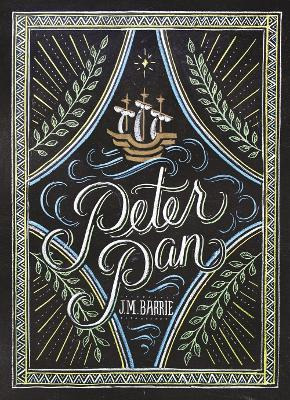
Rating: 1/5
Title: Peter Pan
Author: J.M. Barrie
Pages: 212
Review:
A tale about motherhood written in 1911 by a white man. How bad can it be? Unsurprisingly, very.
I read this book years ago and I was never a fan of Peter Pan even as a child. Now that I reread it as an adult I can say I went from being indifferent to it to immense dislike. This is got to be the most sexist and racist book I have ever read and it is very weird that it is meant to be for children.
I decided to reread this book because I am interested in three other books inspired by the original story. I sure hope those will be better. Like Alice in Wonderland, Peter Pan is also a story I don’t care for, but I like some of the magical elements in it.
The first line is the only good thing about the first chapters. In the first two chapters I had to deal with George Darling being an insufferable man child and one of the most annoying characters ever, in chapter 10 in particular I had to deal with extreme racism and during the entire book I had to deal with sexism.
I hate the focus on gender roles. Wendy and her mother are just concerned with children, housework, sewing, cooking... This is one of those books by male authors that praise women for being essential angels because they are basically slaves that should do all the kinds of work for the poor useless men. The focus of this story is really disturbing given that Wendy is still just a child.
Then, there is the racism that at this point I believe everyone is aware of. I think Neverland is the product of a white child’s imagination and given the Carnival costumes and depictions of other cultures in elementary school books it kind of makes sense in the old story, as it does playing house using gender roles. It doesn’t excuse the racism and sexism though and it’s still awful. Plus, children should be taught better nowadays and there are so many better books than this one around.
I like how Peter is depicted because it shatters the usual idea of a child being pure. There is even the distinction between Peter and the other kids since they are more self-aware about morals. Peter is a child that doesn’t care and doesn’t worry about consequences. He can kill with no remorse and he is very self-centered. As Wendy herself put it: “It is only the gay and innocent and heartless who can fly”. Yet, every female character seems to love him the most because he has his baby teeth, I guess. I am writing every female character because it goes from humans to fairies to mermaids and a bird! The only two girls close to Peter’s age are in love with him and so is Tinker Bell and the ones that are too old for that have a motherly love towards Peter. The bird even forgets her own eggs in order to help Peter!
I also like the tragedy of Peter Pan himself so the ending chapter is also mostly good. When Peter takes Wendy to Neverland the year after she gets home, he admits he already forgot who Hook and Tinker Bell were. Peter has no notion of time so he can’t keep his promise of visiting exactly every year. He wishes for a mother, but doesn’t wish to grow up and stay in the real world. As mean as he is it is still a sad tale.
Even if there were elements I liked about this, most of the book was awful and the good doesn’t outweigh the bad in this case.
6 notes
·
View notes
Text
50 Years Later: The Still Sweet Legacy of Willy Wonka and the Chocolate Factory
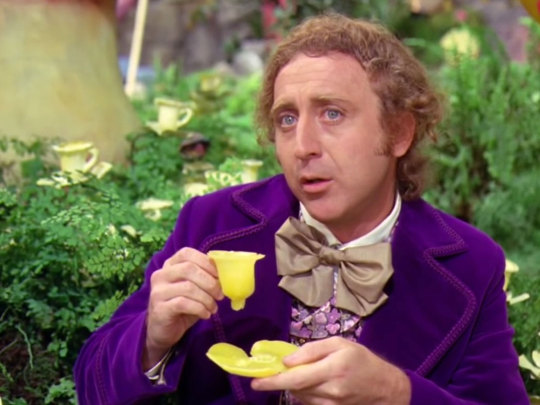
Image source: https://people.com/food/gene-wilder-death-willy-wonka-pure-imagination/
I first watched Willy Wonka & the Chocolate Factory during the summer of 2001, when I was four years old. Sometime after the end credits rolled, I waddled into our little English garden and decided to have a nibble of one of the buttercups poking through in the grass. You will be unsurprised to discover that it tasted acrid and bitter and that I promptly screwed up my face and spat it out again. ‘But— but- -’ little four-year-old me thought, ‘—but in Willy Wonka’s garden the yellow butter-tea-cups are edible and filled with a breakfast brew! The toadstools and mushrooms ooze sweet white cream! And the trees don’t sprout boring old fruit, but giant jellified gummy bears!' According to my four-year old logic, in Wonka’s edible garden these synaesthetic saccharine delights could exist and so in our garden they could too. So was the bittersweet belief that ‘Anything is possible’ the film inspired - bittersweet because, of course, it's not true. Today marks the 50-year anniversary of Willy Wonka & the Chocolate Factory, which premiered in the United States on this day in 1971. Time reveals a legacy that is more sweet than sour.
The 1971 adaptation of Roald Dahl’s 1964 book ‘Charlie and the Chocolate Factory’ has an origins story that reads like a saccharine fairytale, complete with the requisite obstacles. Once upon a time, the story of Charlie Bucket and his lucky visit to a chocolate factory found its way into the hands of a 12-year-old girl called Madeline Stuart, the daughter of a Hollywood filmmaker, Mel Stuart. Madeline approached her father and asked him to make a film out of the story. In Stuart’s memory, his daughter’s innocent plea went something like this: ’Daddy... I want you to make this into a movie!’ A self-confessed chocoholic, Stuart said yes. And the rest was history? Not just yet...
The early 1970’s wasn’t Hollywood’s happiest hour. Low attendance and a struggling national economy meant that the U.S film industry was in a state of near-collapse and financing the movie was no easy feat; studios were cash-strapped. It was a stroke of sweet luck that the producer of the film, Mel Stuart’s friend David Wrober, had a connection to the Quaker Oats Company who, by happy chance, were looking for a way to break into the chocolate industry. In an unprecedented move in Hollywood, Quaker Oats agreed to finance the film on account of the fact that it would allow them to launch a ‘Wonka’ bar. A convenient if imperfect marriage was formed between the food company and the producers. A Happily Ever After? Still not yet...
There were active forces that didn’t want the candy man to make the leap from page to silver screen. Having long been vocal about Hollywood and its poor representation of black people, the NAACP objected to the adaptation because of the colonial overtones of the Ooompa Loompas in Dahl’s story (described as “a tribe of miniature pygmies” who were imported from Africa); they didn’t want additional attention being brought to the novel. The NAACP eventually suggested that “The solution is to make the Oompa-Loompas white and to make the film under a different title.” Mel Stuart agreed. The title was changed to ‘Willy Wonka and the Chocolate Factory’, a change that would also benefit the marketing of the Quaker Oat Company’s ‘Wonka’ bar. After Stuart consulted with some black actor friends, it also was decided that the elf-like characters would be carrot orange with grass-green hair. Whether this amounted to ‘whitewashing’ or not is a matter for the individual to decide but changing the skin colour was the only way to adapt the book without making more significant changes to Dahl’s story. After all, it was the man himself penning the screenplay.
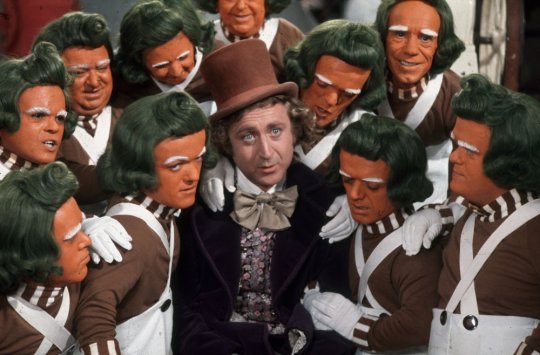
Image source: https://www2.bfi.org.uk/news-opinion/news-bfi/features/search-perfect-willy-wonka
Dahl’s screenplay - bloated and too close an adaption of the book, was eventually revised by newbie screenwriter David Seltzer, but the fantastical elements of the author’s story remained largely intact: chocolate rooms with chocolate waterfalls and rivers, fizzy-lifting stations that send Charlie Bucket and his grandfather floating to the ceiling, and elevators that fly straight into the sky. Harper Goff, famed for his work on the 1945 Disney film ‘20,000 Leagues under the Sea’, was tasked with bringing Dahl’s demanding vision to life in the art department. Then there were difficulties in casting too, and a cross-country search took place for the Oompa Loompas and the lucky ticket-winning children (lamentably, only white actors were cast). With scouting and sketching underway, producers had the formidable challenge of finding somewhere to shoot the movie. After considering the Guinness Factory in Ireland and – wait for it - a national monument in Spain, producers settled on the Munich Gas works and Bavarian Film Studios in Germany as the central filming locations. It was cheaper than America and the location’s foreignness to British and American audiences would work in the favour of creating a ‘Neverland’ story.
Tinged with sweetness and sourness, pre-production on Wonka came to a close in late August 1970 and principal photography began. For the adults on set, budgetary problems were an ongoing source of stress and the unusual marriage between Hollywood and the food industry was one of the main causes. Unlike Paramount or Universal, who might have expected the film to go over budget, Quaker Oats viewed the film as one long advertisement for their new bar and were unsurprisingly less sympathetic when the weather was bad and shooting had to be delayed or when something went wrong on set and more money had to be poured in (or, in the case of the chocolate waterfall, a specially sourced anti-foaming solution). The kids also had their tribulations (and were only renumerated £60 per week for their hard labour). Stuart was a tough director. So tough, in fact, that the child actors used to joke that they deserved Oscars for their roles (or for putting up with Stuart). He treated the young actors as adults and perhaps that’s one reason why the performances are so strong. But Stuart reflected that overall, it was like ‘one big slumber party’ for the child actors. Stories from the set include Paris Themmen, who played Mike Teevee, releasing bees from underneath a bell jar in Wonka’s chewing gum machine. Denise Nickerson (playing Violet Beauregarde) and Julie Dawn Cole (Veruca Salt) fought over Peter Ostroff, who played Charlie Bucket, and took turns being his ‘girlfriend’ day-by-day. After lunch breaks, Ostroff and Gene Wilder, who played Wonka himself, would walk back to set together sharing a chocolate bar. There was an excitable atmosphere on set and, filmed without storyboards or pre-production rehearsals, it translated into authenticity in the final film.
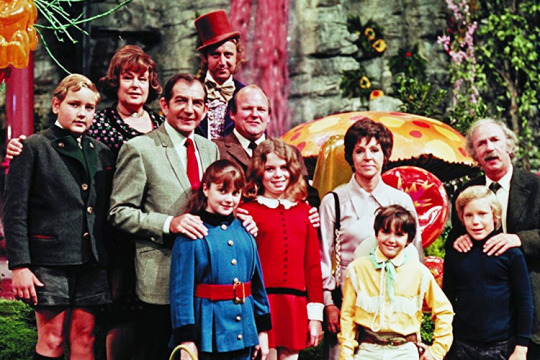
Image source: https://www.thedelite.com/willy-wonka-and-chocolate-factory-movie-facts-you-never-knew/
Filming came to a bittersweet end in November 1970, cast members said their teary goodbyes, and then seven months later, Willy Wonka premiered in the United States. While time has judged differently, the contemporary reception to the film was, at best, lukewarm. From a $2.9 million dollar budget, the film only made $4 million in theatres and ranked as #53 in the box office. There were a number of reasons for this. Several reviewers panned the movie; a critic from the New York Times called it ‘tedious and stagy with little sparkle and precious little humor’. The fun and spectacle of Willy Wonka didn’t sit well with an anxious and cynical audience. In the Vietnam era, The French Connection, The Omega Man, and A Clockwork Orange were in, and optimism and fun were out. The film also had to contend with the declining weekly movie attendance across the U.S, which reached an all-time low of 14 million in 1971 (from 44 million in 1963). On top of this, Dahl didn’t exactly enthuse about the final product. Finally - and this is what the director attributed primary responsibility to: a lacklustre marketing effort on behalf of Paramount Pictures.
But box-office results aren’t everything. Like sherbet - sour at first and then Oh so sweet, Willy Wonka has gone on to gain a mass following of fans and gained the all-desirable ‘cult’ film status. The phenomenon happened over time. Six years after the film appeared on cinema screens, it was sold to Warner Brothers and became one of their best-selling video cassettes. Then, periodic screenings on cable and network television over the following decades meant that it gained an even wider following and stayed within Western cultural consciousness. The never-ending references to Willy Wonka in popular culture - from The Simpsons to Austin Powers to Marilyn Manson’s music videos, is testament to this. The same could be said about the upcoming Willy Wonka origins story, whether it turns out to be a good film or not. Willy Wonka and the Chocolate Factory currently stands as the second most watched film of 1971 on Letterboxd (the Goodreads of film).
Re-watching the film in 2021, it seems almost inevitable that the film has found new and wide- ranging audiences and there’s one main reason for it: a stellar and totally captivating performance from Gene Wilder. The director attributed the film’s longevity to the fact that ‘it was made for adults; it was not made for children’ and it was Wilder himself that brought the grown-up fun. Wilder’s Wonka is sarcastic and witty, ensuring that the final film ended up as a ‘story for children’ only as much as After Eights are for post-dinner treats and Yorkie bars are just for boys. Wilder created a more nuanced and entrancing character out of Wonka than what is portrayed in the book - a Wonka who is dishonest but trustworthy, sarcastic but still empathetic, indifferent but deeply caring, and aloof but charming. Sure, the sets seem slightly dated (the chocolate room in particular) but watching Gene Wilder sing ‘Pure Imagination’ is so wholly captivating that one almost doesn’t notice the set’s limitations. Creating, let alone portraying, such an enigmatic version of Wonka is a tall order, but Wilder made it looks effortless. As evidence of his skill as an actor, Willy Wonka shows Charlie little interest until the very end of the film and then within minutes conveys a parental love to the boy that seems entirely believable. Wilder’s tantalising hot then cold, sugary then sour, sweet then salty performance sustains the whole film.
From the outset, it seemed like the Wilder-Wonka synergy was made to be. Wilder was a relative newcomer to Hollywood in 1970, making his feature film debut in the 1967 film Bonnie & Clyde, but when he walked into the casting room at the Plaza Hotel in New York, Mel Stuart knew he was the man straight away – ‘That’s Willy Wonka!’ he said. Wilder himself immediately seemed to have an intuitive understanding of how to bring the character to life, agreeing to take on the role on one condition: he said to Stuart, “I would like to come out [of the factory] with a cane and be crippled because no one will know from that time on whether I’m lying or telling the truth.’’ Like a magician, Wilder’s Wonka was going to draw you in and keep you in the palm of his hand. To the child actors on set, the Wilder-Wonka symbiosis was very much real. Julia Winter recalled that between takes the kids would crawl all over Wilder yelling, ‘It’s my turn to sit on his lap!’. In turn, Wilder would tell them jokes and stories; he ‘never got cross’. I remember feeling the same captivation as a child watching the film: I wanted to spend time with Wonka. It was only some adults who missed the magic trick. Dahl criticised Wilder’s performance as ‘pretentious’ and insufficiently ‘gay’. Wilder himself recalled hearing talk of mothers saying that the film was ‘cruel to the children’, but he understood that ‘maybe some mothers felt that way, but the children didn’t feel that way...there are limits and they want to know the limits’. The continuing classic status of the film is evidence that the kids (and Wilder) were right. The Wilder-Wonka magic has survived 50 years without souring. The only bittersweetness in watching the actor sing and twirl across the screen is knowing he is no longer with us.
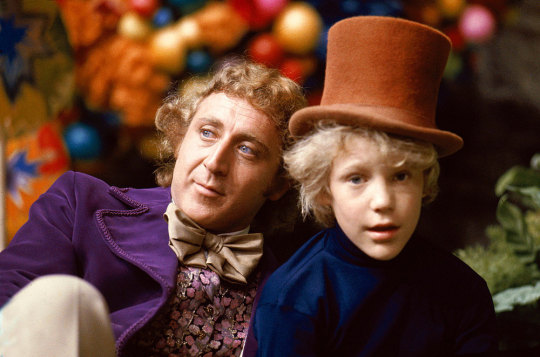
Image source: https://cometoverhollywood.com/2016/08/29/musical-monday-willy-wonka-the-chocolate-factory-1971/
If Gene Wilder carried the film, then what about the story itself? The plot is simple, heart- warming, and doesn’t deserve close scrutiny. Willy Wonka really is a ‘show’, the story is secondary to the individual charisma of Wilder and the spectacle of the image and music. We don’t know if Charlie will be happy or sad once he’s inherited Wonka’s factory. We also don’t know what happens to the rest of the children after they’ve been punished. But who cares? The audience is taken to a joyful fun park where you want to eat everything on screen and play with all the gizmos and gadgets, and where the music is so catchy that you can’t get it out of your head for days and weeks after.
Select ideologues have (and will) taken issue with the story, discarding it as gauche capitalist propaganda. One Marxist criticism of the story even gained enough traction that the director took notice in later years. The parts seem to be there: a businessman running a competition by hiding five golden tickets in his candy bars, competition from other candy makers, the Wonka-Oompa Loompa relationship, and a ‘Rags to riches’ story for Charlie. But one might ask if this is an unnecessary and selective reading. The parts for an alternative vision are equally apparent: from the wild and uncontrolled creativity and experimentation inside the factory to the joy found within the chocolate work itself, and from the relentless drive forward ‘You have to go forward if you want to go back’ to the end picture of the elevator shooting through a glass ceiling and into the skies. If a critic really wanted to make the comparison, such images would sit more easily in Soviet Russia than capitalist America. Wonka might have a capitalist wrapper but take a bite and look closely inside and its ideological filling is incoherent (it is, after all, entertainment). One could imagine how the film might be set in a collectivist community rather than a ‘capitalist’ factory, but it would have made for a worse film. It is the sense of unease that runs throughout the film that has made it timeless, whether its Wonka’s frustration with August Gloop for polluting his pure chocolate river, his fear over someone leaking the secret recipe for the ever-lasting gobstopper, his nightmares in the tunnel sequence, or his anxiety over finding a worthy heir for the factory, which finally manifests as a misjudged outburst at Charlie. It’s the fraught relationship between abundance and greed that makes for such compelling watching. Anyway, as the screenwriter stated in an interview, the film is ‘...not the function of sitting down and intellectualising... it’s the function of scotch tape, cardboard, let’s put on a show!’ Why spoil the fun and examine the parts individually when the sum of the parts is a universal message people need to hear now as much as they did in 1971? Reward honesty and integrity, not greed.
A moral message delivered in an almost subversive tone is another reason for why the film feels timeless. Instead of adults dragging tired and bored children around, the adults in this film are at the mercy of their kids and Wonka. Young viewers can marvel at the gluttony of August Gloop, the smart-mouthed Violet Beauregarde, the wanton bad behaviour of Veruca Salt, and Mike Teevee’s devotion to cable. It’s escapism at its best to watch other kids do what you can’t do: speak back to parents and yell and scream. It’s equally as tantalising when the naughty children are punished in fantastical ways. Augustus, drinking from the chocolate river, falls in and then gets sucked up a chocolate chute. Violet chews forbidden gum and then blows up into a blueberry the size of a small horse. Veruca falls down a garbage chute. And Mike finds himself sucked into a television. Best of all, the parents are equally guilty of bad-behaviour as the kids - and, boy, do they pay for it. Wonka might be a film for children and adults, but you can guess who’s going to really have the best time. It is little Charlie, after all, who wins Wonka’s factory at the end of the day.
In the scene where Willy Wonka drinks from a yellow flower-shaped cup and then eats the cup, the cup itself was made of wax. Gene Wilder had to chew the wax pieces until the end of the take, at which point he spat them out. Adults that once watched the film as children now know that flowers in the garden aren’t edible. Our eyes can pick up the small imperfections in the film - the sweets that look plastic and chocolate river that looks like exactly what it was - ‘dirty, stinky water’. But through a child’s eyes - even coming to the film half a century after its release, the film really can be a ‘world of pure imagination’. In another fifty years, will children still wander into the garden, pick up a buttercup, and bite into it with all the belief in the word that it’ll taste like sweet, white chocolate? As long as parents continue to show children the film, they will - and what a marvellous legacy for a film to have. Fifty years on, it’s safe to say that Willy Wonka has had a sweet and indelible impact on our sadly mostly inedible world.
Sources for post:
Mel Stuart, Josh Young, ‘Pure Imagination: The Making of Willy Wonka and the Chocolate Factory’, 2001.
Julia Dawn Cole, ‘I Want It Now! a Memoir of Life on the Set of Willy Wonka and the Chocolate Factory’, 2011.
Pure Imagination: The Story (Making) of Willy Wonka & The Chocolate Factory: https://www.youtube.com/watch?v=0yyev_3S_Y4
----
© Fifty Year Films, 2021. Unauthorized use and/or duplication of material from this blog without express and written permission from this site’s author is prohibited. Excerpts and links may be used, provided that full and clear credit is given to Fifty Year Films with appropriate and specific direction to the original content.
20 notes
·
View notes
Text
Clone Wars: Stories of Light and Dark- Book Review
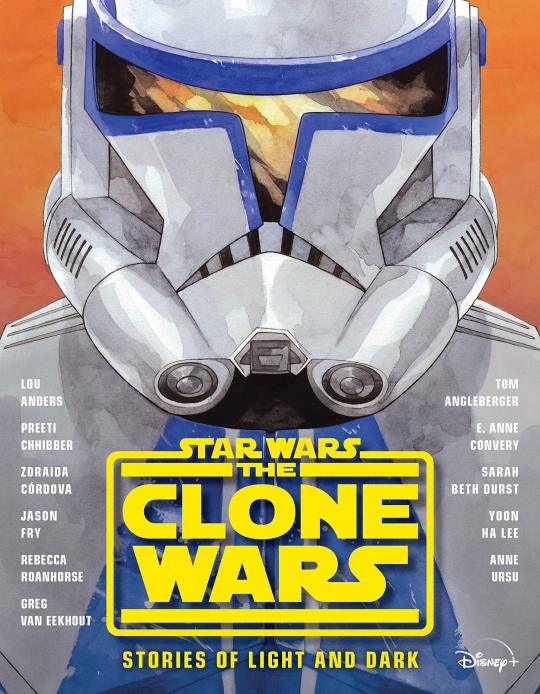
“Clone Wars: Stories of Light and Dark” Is an anthology of stories narrating some of the arcs of the clone wars from the perspective of the characters. It gives more details and depth to some episodes, as well as giving us information that makes us have a different view of the events.
This is not exactly a review, but mostly my reactions to reading the book. I do recommend it, if you loved the clone wars and want another perspective on some of the arcs this will be a good read. That said, this does contain spoilers for the clone wars.
#1 “Sharing the same Face” -Jason Fry (from the episode “Ambush”)
Okay this was once one of the most light-hearted episodes of the series and now I ended up crying. I did not expect an order 66 reference here. Every time Yoda addresses Dooku is painful. Seeing how Yoda perceives the clones is really heart-warming, but knowing how it all turns out in the end is really sad and during the whole text you are really aware of that. In the show you kind of forget about what’s going to happen for a while, but this text just keeps you thinking about it constantly. It was a good read, I loved it. I found it really interesting knowing Yoda approaches the clones the same way he approached his students at the temple, and knowing what his opinions on the clone army it was a good detail. Loved this one.
Did I care that much about this episode before? No. But watching it right after reading this made me cry for half an hour. (I am a really emotional person, so take this with a grain of salt.)
#2 “Dooku Captured”- Lou Anders (From the episodes “Dooku Captured” and “Gungan General”.
This was a funny read, and the fact that the events are narrated by Dooku Himself made it even more hilarious. It’s supposedly a holorecording Dooku was doing for Sidious, and you can tell by his words that he was so done. Poor Dooku deserves a meditation day after it. You can tell how annoyed he was by the whole situation and his perception of Anakin Skywalker and Obi-Wan Kenobi. They really are bothering for the count. I’m surprised he didn’t retire after this event, man’s gotta be really tired. Also, when they were tied together, they just shared a braincell and most of the time, Dooku was the one carrying it. The love he had for Qui-Gon does not extend to rest of the lineage, clearly.
At first it was really slow, but after they get captured by the pirates it just gets funnier. Good story to read after the sadness the previous text gave me.
Also, the fact that Dooku canonically records himself venting to Sidious is hilarious to me. Like, can you imagine being Palpatine and receiving daily vlogs from your apprentice ranting and complaining about Anakin and Obi-Wan? Dude was tired, of course he would let Anakin decapitate him in the end.
#3 “Hostage Crisis”- Preeti Chhibber (from the episode “Hostage Crisis”)
For an Anidala shipper this is a must read, because you will know exactly what Anakin thinks of his wife and how he views Padmé. This text was more Anakin centric (I believe the next one is Padmé centric) and it was a delight. I haven’t read much in canon about stuff that involves Anakin’s feelings so this was really good.
The scene from the beginning of the episode? Is hotter when you read it, trust me. For a clearly SFW text, this was intense. I’m pretty sure I can guess all of Anakin’s kink only by what was implied in his thoughts. Is also really sweet to see how much she cares, but also know why everything went downhill at the end. Good retelling.
#4 “Pursuit of Peace”- Anne Ursu (from the episodes “Heroes on both sides” and “Pursuit of Peace”)
I really love Padmé Amidala. My favorite senator. If you have seen my review of Queen’s Peril you KNOW How much I love her, and even when this text was written by another author, I still got the same feeling about her. Padmé is amazing. This arc is one of my favorite of the Clone wars because it’s the arc that let you see that it wasn’t a black and white kind of situation, both sides were being played. An none of them were really worrying about their people, they were in it for the money. I love reading Padmé’s thoughts on the whole situation. Also, the way this story is written makes what went down with Padmé and Anakin in the third episode make more sense and more in character. She is a strong, good, and smart politician. But she is also motivated to see the light in the dark and preserve the light, it gave me major Qui-Gon from “Master and Apprentice” vibes. It did make me tear up a little, because when I finished it, I realized everything she did was for nothing. She was too kind in a galaxy already so corrupted.
Also, Palpatine stop calling her “my child” you disgusting sith lord, I know you are responsible for her death and so do you, so shut the f up. Padmé was doing everything right and she hasn’t done anything wrong in her life whatsoever.
“Just because there’s darkness in something does not mean you do not love it. You show it love, you show it light, and you hope it chooses the light”.
She was talking about the senate but you just KNOW she isn’t really talking about the senate.
This story re-telling broke me, just as the first one. I am not ready for the next one. Do I have to? Man, I really don’t want to go through Umbara again.
#5 “The Shadow of Umbara” -Yoon Ha Lee (from the episodes "Darkness on Umbara," "The General," "Plan of Dissent," and "Carnage of Krell”)
I was, indeed, not ready for it. It doesn’t really add much to the story… except pain. Rex’s pain, to be precise. Let my man mourn Hardcase :C I just wanted to give him a hug, him and all of the clones to be honest. Fives was as good as always, but re-reading his lines knowing what happens to him made me sad. I hate Pong Krell, get you dirty hands off my babies. I don’t think this re- telling made me sadder, but that’s only because it was just as painful as the episodes.
Dogma my beloved, you deserve everything.
I love how this arc develops Rex character and his attitude towards the war in general.
#6 “Bane’s Story”- Tom Angleberger (from the episodes “Deception”, “Friends and Enemies”, “The Box” and “Crisis on Naboo”.)
Is Cad Bane the Regina George of the Bounty Hunters?
The answer is yes. Yes, he is.
I wasn’t really excited to read about Cad Bane at first, I felt that everything that had to be said about the guy had already been stated in the show. He was just a mean bounty hunter in space. But this was actually pretty funny to read, specially because it’s narrated in first person from Bane’s perspective on what happened with Kenobi. And it’s hilarious.
He is basically re telling the events to Boba and Bossk while he is in jail again. During his story you can learn a few things about him as well, specially what his thoughts are in relation to some important topics. You would think he is only concerned about the money and blasting people, and you would be right. But he also does have an opinion on what’s happening on the galaxy at large, on the jedi, on Palpatine and Dooku. But those opinions don’t affect how he gets the job done. It was really interesting seeing him internally judging Kenobi for being a liar, and knowing something is wrong with the jedi order if they pulled that off. He knows everyone is being deceived, but doesn’t know how. That’s why he doesn’t care, and doesn’t get involved on anything unless you offer to pay him. Money moves him, but not the people who has it.
It was a good story, and I also liked to see how Bane respects Boba and sees him as the one that’s going to take his place eventually.
We know from the deleted episodes that Cad Bane was supposed to be killed by Boba Fett, but we haven’t seen that in canon yet. I really hope they answer what happened to Cad Bane in the current canon, I would love to see that in a comic, or in a book.
#7 “The lost nightsister”- Zoraida Cordova (from the episode “Bounty”)
I love Asajj Ventress for a million reasons and this story just made me love her even more. It’s the same story from the episodes but with an insight of what Ventress is thinking about. Which is unsurprisingly very depressing but the story itself turns out to be pretty uplifting.
It’s about her thoughts on what happened after the massacre of her sisters, her family, and how she deals with everything she had already lost. How lonely and worthless she feels. But during the course of the story, we see her reconnecting with who she is, and learning her value. Learning she is a powerful person, master or not.
It was also really sad to see how she compared herself to others. She was really sad and angry that nobody cared about what happened to her people, no one that cared about her. She saw how people wanted the girl in the box back and thought about how nobody would ever do the same for her and it was sad.
I also find very depressing that she couldn’t mourn her family.
But then she said this:
“What made her so special? What made her worth—No. She couldn’t think that way. This girl’s worth didn’t diminish her own. “
And like, I’m 100% rooting for her here.
Also, I love that once she realized the girl from the box was being smuggled to be essentially a child bride, she didn’t hesitate to scam the old creep. She may be an assassin, but during the course of this story you learn that she is disgusted by men who take advantage of female beings. I also love her internal monologue after the guy was bothering her in the cantina and how she just knows that if she can defend herself, she will do it with no hesitation.
Lovely story, I love knowing more about Ventress. Beautifully written.
#8"Dark Vengeance”-Rebecca Roanhorse (from the episodes "Brothers" and "Revenge")
It’s so on brand for Darth Maul to have his entire story be about Kenobi. It’s narrated by him, but directed towards you, like he is telling the reader a story. That in some stories could be like an awkward thing, but here it was well done. I love Maul and like, I could picture us having that conversation, well, me listening to him monologuing.
I really liked that he started telling the story from the events that happened on Naboo. You get to really see what happened from his perspective and understand why his hatred of Kenobi only grows over time.
Also, Darth Maul was like “I can excuse murder, but I draw the line at being rude”. Which is so morally wrong, but very fitting to his character. He is really upset at Kenobi for not caring about what happened to him. From what I gathered of the info that he let us know, he would probably like it more if Kenobi killed him instead of having to spend all those years in the garbage. Nobody cared for him enough to go and check up on what happened to him. That doesn’t excuse murder though.
The interactions he had with Kenobi let us know that it was not very jedi like the way he treated Maul, ignoring his rage and letting it consume him. Obi-wan just kept adding fuel to the fire because he was also really angry at Maul for the murder of Qui-Gon, not realizing that that would only make Maul be even angrier. And we know how that ended up for Satine Kenobi.
Final thoughts: Savage, I love you.
#9 "Almost a Jedi"-Sarah Beth Durst (from the episode "A Necessary Bond")
I thought this story was going to be from Ahsoka’s point of view. It was not.
I’m not mad at it though.
The story itself does focus on Ahsoka but it’s narrated by Katooni. It’s basically about how much she adores Ahsoka and wants to be like her, but also doubts herself a lot. She thinks she is not good enough to be a jedi. But her experiences both with Ahsoka and with Hondo Ohnaka makes her change her mind.
I want to say that I love the fact that it’s canon that she drew a poster of Ahsoka for her room because she really admired her that much it's so wholesome. It’s cute, and also let us see the perception the younglings had of Ahsoka.
Also, the bond between Hondo and Katooni is really wholesome. This also made me realize that this encounter with a young jedi is the reason he is immediately friendly with Ezra in Rebels. Ezra and Katooni do share similar personality traits sometimes.
Deep diving in Wookiepedia after reading this I found out that Hondo’s ship in Galaxy’s Edge is called “The Katooni” and now I’m sad thinking he was probably devastated when he learnt about Order 66 and what Vader did to the younglings. Great now I’m angsty about a chaotic evil space pirate.
I think it was confirmed by Dave Filoni that those kids are dead now. May the force be with them, they were good enough jedis.
#10 "Kenobi's Shadow"-Greg van Eekhout (from the episode "The Lawless”)
This is the re-telling of one of the saddest clone wars episodes. The episode just lets you think that everything’s going to be alright, that they are going to survive together, lets you hope that they take off just in time… and then it doesn’t happen. I’m still not over Satine’s death. And this made it even sadder. There were so many points their story could’ve gone differently, but their story was already at an end.
This is in third person but heavily focusing on Kenobi’s thoughts along the way. He really was close to turn to the dark side, but his love for Satine and his grief made him not surrender to it. But he felt an anger, a justified one, but an anger that I have never seen in a jedi other than Anakin Skywalker. And we all know what happens to him.
It was a good but sad reading. I won’t be reading this one again. It’s too much. I knew what was going to happen and it still hit me hard. I wish things would’ve gone differently for the both of them. I wonder if we will get flashbacks to this in the Kenobi show.
Also, I really need an Obi-Wan Kenobi and Satine book of their time on the run.
#11 "Bug"-E. Anne Convery (inspired by the episode "Massacre”)
I can’t talk openly about this story because it’s not actually featured on the clone wars. It’s a really good story, specially if you want to expand on the lore regarding Dathomir and the Nightsister in the new canon. It’s perfectly executed, and even when the story isn’t about any of the main characters it hooked me from start to finish. Definitely one of my favorite stories of the book and If I had to pick one story from this anthology to read again it would be this one.
It has more gruesome details than the others and the atmosphere is dark, and I loved it. I would read a whole Dathomirian Nightsister novel written by this author if it was in this exact same style. I really liked it a lot.
In summary, I really enjoyed reading this Anthology. I would really recommend it to anyone who is fond of the Clone Wars or the prequels era. Adults, Kids, Teens, Young adults. I think I would’ve enjoyed this book as a kid as well, and I enjoyed it a lot now in my early twenties. It contains a little bit of everything and that makes it a really complete anthology.
#star wars books#book review#clone wars#the clone wars#star wars#hondo ohnaka#ahsoka tano#swtcw#assajj ventress#darth maul#ventress#feral opress#dooku#kenobi#anakin skywalker#prequel trilogy#tcw#yoda#clone wars stories of light and dark#star wars novels
25 notes
·
View notes
Text
Western August I: Stagecoach (1939) - Recap and Review
Let’s start at the beginning...almost,
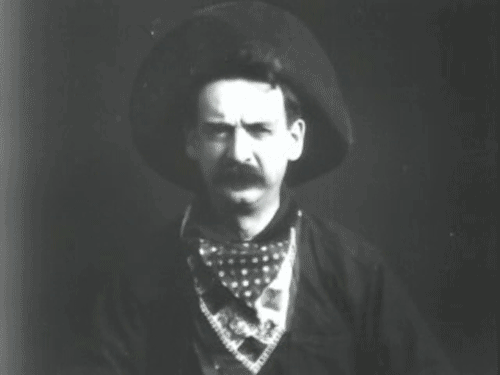
The Western arguably was born with the 1903 film, The Great Train Robbery. This 12-minute short film is a classic, and one of the earliest achievements in film-making. It’s also, unsurprisingly, a Western, and based on an actual train robbery. At the time it was made, the Wild West had only really ended a few years prior, with its heyday being about 40 years past. Which, yeah, is CRAZY. People who remembered the Wild West lived into the 1950s and ‘60s. It seems like so long ago, and it was, but it was still relatively recent from a historical standpoint.
From then, the Western remained a staple of cinema, and would be so for over half a century. And then, enter John Ford. Born in 1894, the Irish American director began his career in 1914 as an assistant and handyman, often working with his older brother Francis. Eventually, John took his place as a director, starting with silent films, especially westerns. Starting with the very successful film The Iron Horse in 1924, he quickly rose to stardom. He transitioned from silent films to talkies pretty effortlessly, and continued his streak. All the while, he was also one of the first directors to have a roster of actors in his company. You know how Tim Burton always uses Johnny Depp and Helena Bonham Carter? Or how the Coen Brothers always use Frances McDormand and John Goodman? Or Wes Andersen with Bill Murray and Owen Wilson? Yeah, that started with John Ford and...ugh...
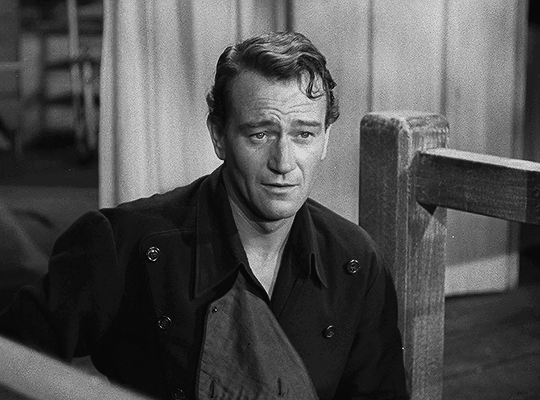
Before I start...fuck John Wayne.
Dude was a racist homophobic asshole, and absolutely a dick. Look it up, or don’t if you’d rather not have one of cinemas most iconic faces completely ruined for you. But OK, outside of that one time that he said that the Native Americans were “selfishly trying to keep the land for themselves”, or that he believed in white supremacy over uneducated blacks...yeah, he’s a DICK...
Marion Robert Morrison was born in Iowa in 1907, and began his film career after becoming injured while surfing without a surfboard and ending his football career. Yes, really. His football coach was a friend of a film director named John Ford, who hired Morrison as a favor to him. Said football coach was also friends with an actual remnant of the Old West: WYATT FUCKING EARP. YEAH.
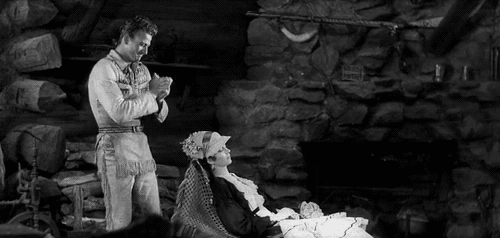
For years, Morrison was a bit player until starring in the film The Big Trail in 1930, a Western directed by Raoul Walsh. And he wasn’t exactly famous after this, but it was with this film that he took up a screen name: John Wayne, after a Revolutionary War general, Anthony Wayne, and...well, the name John. Anthony sounded too Italian. Yes, really. After this movie, Wayne continued to star in more Westerns, and even became one of the first film cowboys to sing on camera.
And then, 1939 came along, and John Ford came to him with a new film project. Being a classic Western, the film was about a group of settlers riding on a stagecoach together through the West. Strangers to each other, they find themselves attacked by a group of Native Americans belonging to the Apache tribes. This film, an adaptation of a 1939 short story, would come to be known as Stagecoach. And it would launch Ford, Wayne, and the Western genre into a Golden Age. So no more navel-gazing, let’s get started!
SPOILERS AHEAD!!!
Recap
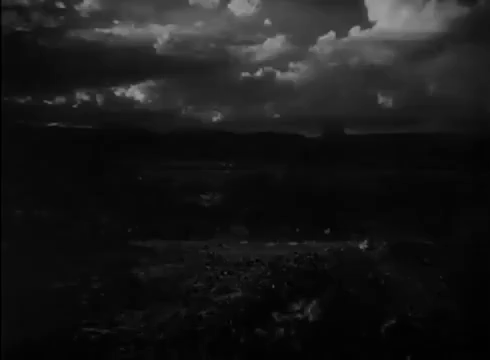
I get reminded that I haven’t watched a Criterion Collection film in a while, and the film begins with a rousing Western theme, courtesy of...holy shit, this movie has SEVEN COMPOSERS? Well, OK, courtesy of somebody in that list of seven. From there, we cut to a camp somewhere in the Arizona Territory in 1880. Which, again, is only 60 years prior to this film’s release date. There, a group of men discuss the danger imposed on them by the Apache, stirred up by the legendary warrior Geronimo.
And from there, we go to the town of Tonto, where stagecoach driver Buck (Andy Devine) lets a group of passengers out. One of these passengers is Lucy Mallory (Louise Platt), there to catch another shuttle to meet her husband in Dry Fork, New Mexico. However, the stagecoach gains an extra passenger in the form of the Marshal, Curley Wilcox (George Bancroft), who goes to find an outlaw also in Lordsburg.
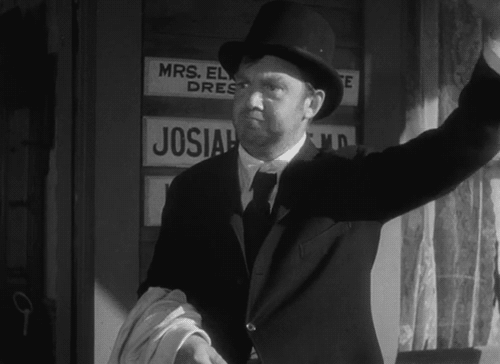
The passenger list builds with the addition of Doc Boone (Thomas Mitchell) and Dallas (Claire Trevor), a drunk and a prostitute both driven out of town by the Law and Order League of Women, due to social stigma affecting them both. In a bar getting a farewell drink, Doc meets yet one more passenger, Samuel Peacock (Donald Meek), a whiskey salesman that Doc is glad to meet. Meanwhile, banker Henry Gatewood (Berton Churchill) also boards the vehicle, under mysterious circumstances.
Friends of Lucy are worried with her travelling a drunk and a prostitute (the ABSOLUTE SCANDAL), but she needs to visit her husband in Dry Fork. As she leaves, she meets eyes with the dangerous but enigmatic gambler Hatfield (John Carradine). And before they’re able to leave altogether, the carriage is stopped by the army, who warn them of the Apache and Geronimo. All of the passengers refuse to get off, and YET TWO MORE passengers board to protect the carriage: the Marshal and Hatfield. And finally, they’re off! But as they head out, they’re stopped when they encounter a recently escaped outlaw.
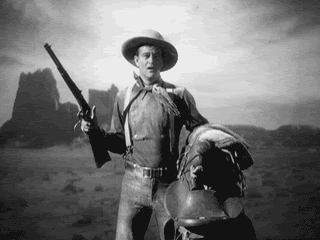
This is The Ringo Kid (John Wayne), who just got out of prison. The Marshal sees him, and takes him into custody on the way to Lordsburg, where they plan to drop him off into jail. And yes, he’s put on the fucking stagecoach. In total, we have Buck, the Marshal, Lucy, Hatfield, Doc, Peacock, Gatewood, and the Ringo Kid. Jesus, that’s a crowded-ass carriage, even if two of them are outside of it. Hell, Ringo’s sitting on the fuckin’ floor!
Anyway, the group interacts and introduces themselves. We learn that Doc once patched up Ringo’s brother, and was discharged from the Union Army for drunkenness. We learn that Hatfield is a true southern gentleman, and a veteran of the Confederate army (much to Doc’s ire), and that Ringo’s brother was murdered under mysterious circumstances.
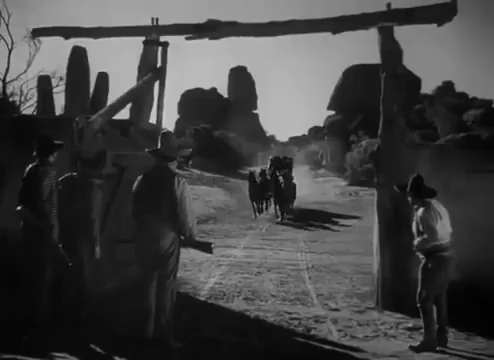
The group gets to Dry Forks, currently under occupation by the army. Said army had accompanied them (outside of the carriage, thank God) to Dry Forks, and are staying there to guard against the Apache. Meanwhile, Lucy’s dismayed to find that her husband isn’t in fact there. This leads to the debate of whether or not the party should go back to Tonto, or head onwards to Lordsburg. Buck wants to go back to Tonto, as does Peacock, while literally everybody else wants to go to Lordsburg. And so, they continue onwards.
Before heading onwards, the group sits for dinner, during which Ringo is the only one to show any form of kindness to Dallas, as everybody else looks down on her for prostitution. Shit, man, they won’t even sit near her at the table. Jesus. Unfortunately, Dallas is used to this cruel treatment, and it allows her to bond with Ringo in her loneliness. Once again, character interactions reveal things about our cast. Lucy is feeling quite ill, and Hatfield reveals that he served under her father in the Confederate Army.
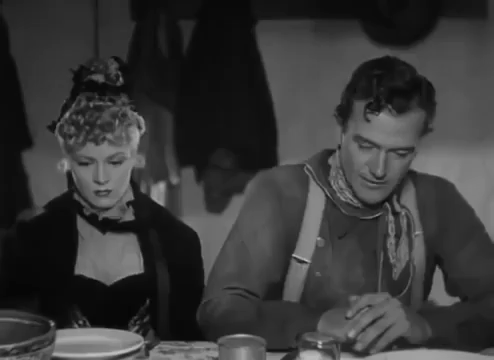
And from there, the coach continues on through the desert. Buck and the Marshal argue about letting Ringo free, as he aims to continue his feud with the outlaw Luke Plummer and his brothers, despite the fact that he’ll likely be killed by them. It’s for this reason that the Marshal wants to keep Ringo in his custody, as he was good friends with his father and doesn’t want to see him killed by the dangerous Plummers, whom Buck thinks should be taken down regardless.
Inside the coach, the banker reveals that he’s literally a Republican from 2016 (he rants about small government, and claims that a businessman should be President, holy shit), while people keep treating Dallas like shit, except for Ringo. They go through a cold mountain pass, which isn’t great for Lucy for some reason. It’s actually quite rough on everyone. Except for Doc Boone, who keeps drinking Peacock’s whiskey samples, which is hilarious.
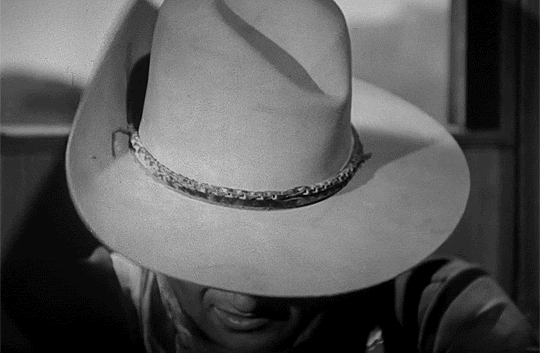
Finally, the group makes it to the next stop, Apache Wells. There, Lucy discovers that her husband has been severely wounded in a battle with the Apache, and she falls faint. Despite being absolutely SMASHED, Doc sobers up to help her, with the help of Ringo and the Marshal. Meanwhile, Dallas watches over her, despite the rancor that Lucy’s tossed at her this whole time.
The group stays the night, attended to by Chris (Chris Pin-Martin) a Mexican man who’s married to Yakima (Elvira Rios), an Apache woman who...is played by a Mexican singer. Huh. I mean...it’s still technically redface, unfortunately. But then again, the attitude towards Native American actors at this time was...oh boy. And the portrayal of the Mexicans in the camp aren’t exactly great, as a group of them steal the group’s spare horses, meaning that they only have one set of horses to use from here on out.
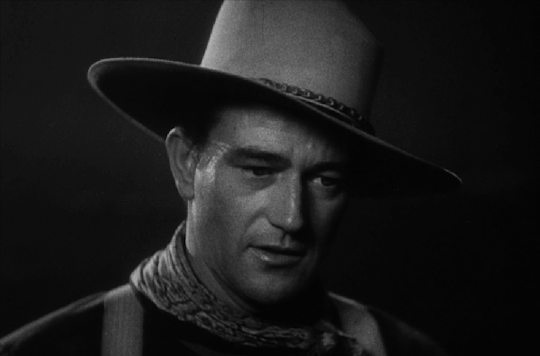
But amongst the unpleasant is a pleasant surprise, and the reveal of the cause for Lucy’s mysterious condition: she’s pregnant. Or rather, she was, as the baby’s just been delivered, and is being held by Dallas. As the group celebrates, Chris warns Ringo to stay away from Lordsburg, as the Plummers will kill him. But Ringo has something else on his mind.
See, on seeing Dallas with the baby, he finds himself quite in love with her. He finds her outside, and tells her that his father and brothers were killed by the Plummers. In turn, she reveals that her family was massacred on the real-life Superstition Mountain. Their conversation ends in Ringo proposing to Dallas, which she protests to because of her mysterious past.
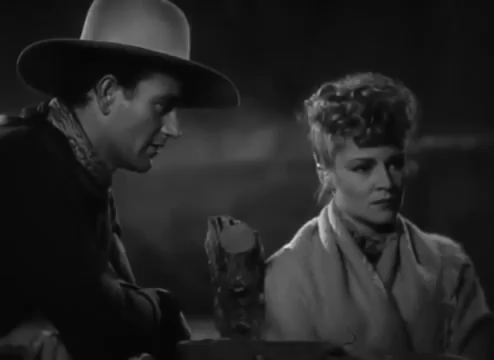
The next morning, Yakima’s left with Chris’ horse and rifle, and the group worry that she’s gone to tell the Apache. After Gatewood panics about his mysterious valise being possibly stolen, the group packs up and readies themselves to go. But Lucy is, of course, still ill from literally giving birth hours ago. Things are still tense between Lucy and Dallas, despite Dallas taking care of her the entire fucking night. Jesus, lady, that high horse is looking uncomfortable, you should get off it.
Dallas has something else to worry about, as she’s thinking on Ringo’s proposal. She consults with the doctor, who reminds her of her mysterious and checkered past being revealed if she goes. But she doesn’t seem to care, and she decides to accept the proposal. As for the rest, Gatewood’s freakin’ the fuck out. Because of Lucy’s condition, the doctor requests that they don’t leave until a day later. And Gatewood doesn’t give a single shit, as the Apache are close enough. Still, the party decides to stay, at Hatfield’s added insistence.
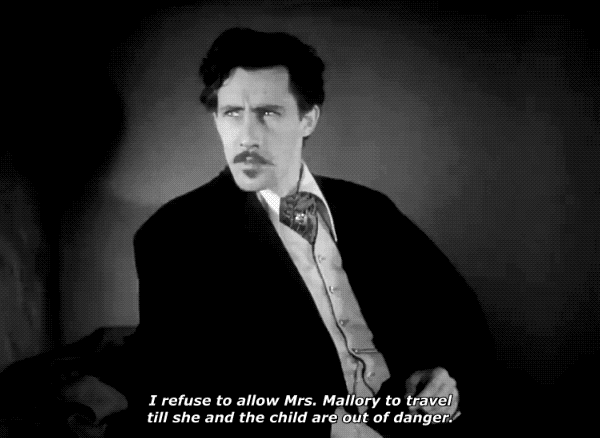
Ringo and Dallas talk, with Dallas both warning him of the Plummers, and also accepting his proposal. The men are all still arguing about whether or not they should leave, and they note that the Apache are likely between them and their destination. Ringo then takes the opportunity to escape and ride to Lordsburg for revenge on the Plummers. But he stops when he sees smoke signals on the hill. The Apache are coming.
No more waiting, it’s time to GO. Taking the still recovering lady and her newborn child Coyote into the stagecoach, they take off into the desert. Gatewood continues to run his loudmouth, to the ire of Hatfield and Ringo. And Peacock, to my delight, shows some kindness and “Christian charity” to Dallas, as she holds Coyote during the ride. And after all, they’re almost at the ferry!
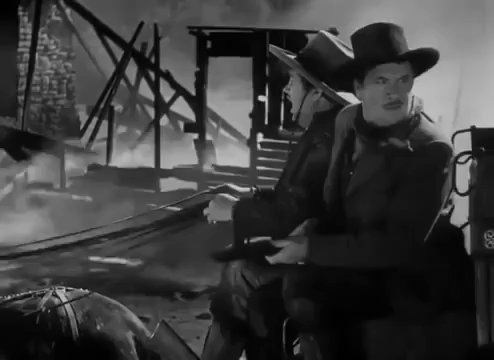
Ah, shit, the ferry! Looks like the ferry, and the entire town of Lee’s Ferry have been burned. And if they ford the river, all of their supplies could be flooded, or the oxen could drown! Or worse, dysentery could set in! That’s what The Oregon Trail taught me! And yet, despite this, that’s actually EXACTLY what they do! And unlike me literally every time I’ve every tried to cross a river without a ferry, they make it through fine! Realistic educational games my ASS!
But it’s not entirely safe, as the group are being watched by none other than the Apache, who make their way down to intercept the group. In the carriage, meanwhile, the group is thankful that they’ve made their way from danger, and even Gatewood relaxes a little. Doc Boone makes a toast, and everyone seems to be getting along for once.
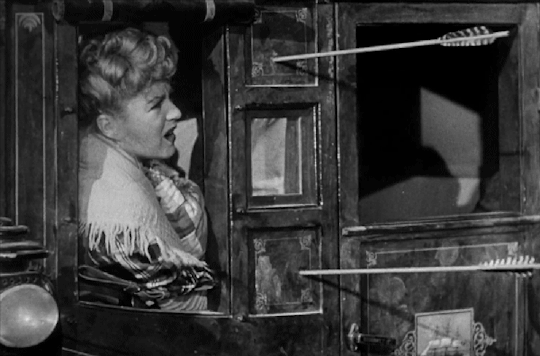
OH FUCK, PEACOCK GOT HIT!
The girlfriend IMMEDIATELY SAYS, “Now he really is Drew Peacock.” I leave and get boba to soothe my injured spirit from that well-timed joke. And then, the movie continues, and the chase is on! The Apache chase the stagecoach through the desert, and the groups trade gunshots and arrows, with Ringo shooting from the back. Gatewood panics so hard that Doc Boone punches him and IMMEDIATELY knocks him out, as he attends to Peacock’s injuries.
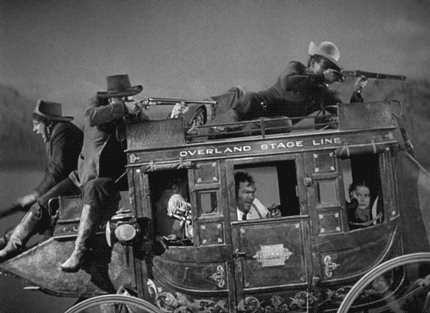
But despite their best efforts, the Apache group catches up to them, although many of them are killed by Ringo, the Marshal, Doc, and Hatfield. In the process, Buck is also shot, and Ringo literally jumps ON THE FUCKING HORSES, and commands them from the front like a goddamn badass. Things begin to get worse, as everybody in the stagecoach runs out of ammo, at the worst possible time. Hatfield only has one bullet remaining, and he considers using it...to kill Lucy! Holy fuck!
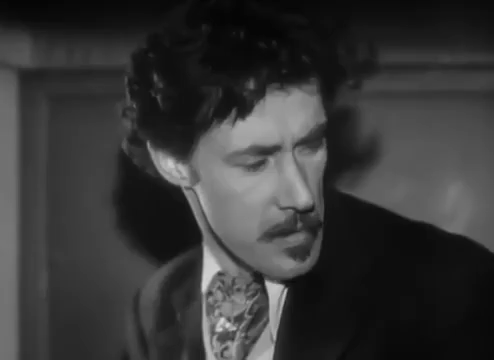
And just as he’s about to fire IN HER FUCKING FACE, the sounds of horns ring out as the cavalry arrives. And Hatfield, dick that he is, is shot. I think he was trying to spare her the indignity of being captured by the Apache, but Jesus, man! He collapses, and reveals that his father is a judge in Virginia before he...either passes out or dies, I’m not sure. The group finally gets to Lordsburg, where it turns out that Lucy’s husband is gonna be OK, and wasn’t severely injured. She tanks Dallas for everything that she’s done, and promises to help her should she ever need assistance. Good, finally, the lady needs a goddamn break.
The stagecoach rides through the busy town, and the arrival of the Ringo Kid gets the attention of Luke Plummer (Tom Tyler), who fetches his brothers Hank (Vester Pegg) and Ike (Joe Rickson). Time to get ready for a showdown, it seems. Dallas seems to know this, and goes to Ringo after the living Peacock (yay!) and the not-so-living Hatfield (oof) are brought in for medical help.
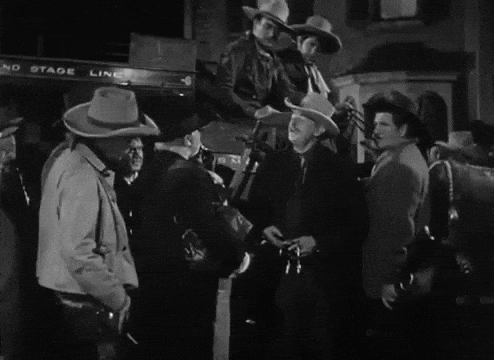
Buck’s also OK, but Gatewood isn’t. See, that valise he was carrying was actually full of money, and he had embezzled it from his own bank. He had counted on telegraph lines being down, so that he could escape with his ill-gotten gains, but has no such luck, and is led away in handcuffs! HA!
Ringo, meanwhile, is set to kill Luke Plummer and his brothers. The Marshal lets him escape, and promises to get Dallas safely down to a little ranch he owns in the South. Dallas and Ringo walk off together, and Dallas tries to get him to leave and say goodbye before he goes to his death, and before he finds out about her past (presumably as a prostitute).
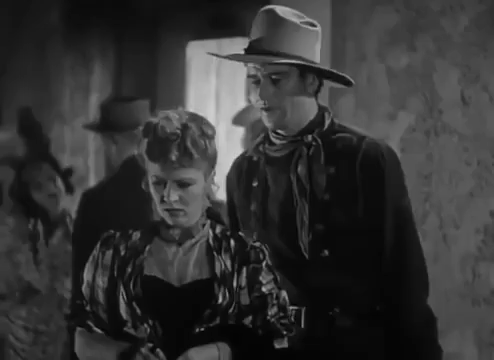
See, they’re actually walking up to a brothel, where Dallas is going to stay and work. Because, yeah, she’s a prostitute. Sucks that she’s been so maligned, because prostitution fuckin’ BUILT the Old West! I guess it’s easier to see that with historical context. As Ringo finds out the truth about Dallas (which he might’ve known all along), he still insists upon marrying her...and upon killing the Plummers.
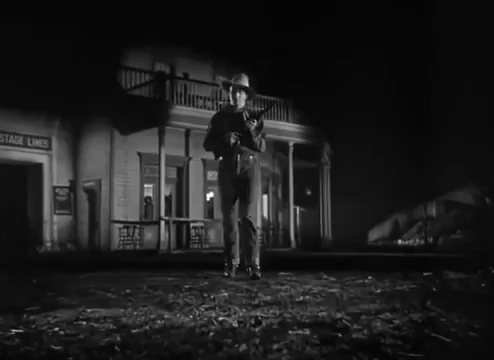
Doc, meanwhile, goes to the bar where the Plummers are waiting. He tells them that he’ll get them arrested, and Luke swears to come back for him after their business with Ringo is concluded. The brothers head outside, ready for the final showdown. It’s 3 on one, Plummers against Ringo. Ringo fires! A few more shots...then silence. And Dallas mourns.
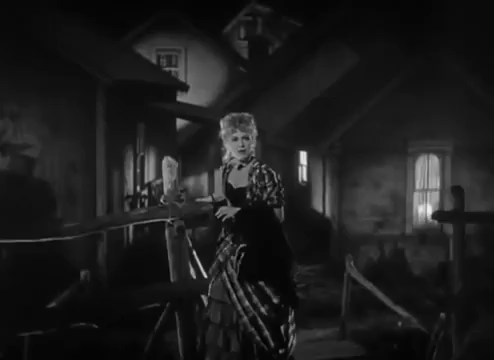
Except that Ringo wins the fight, and goes back to her! A happy ending! I’m sure that’ll be pretty goddamn rare this month. The Marshal arrives to take Ringo away, and Ringo goes as promised. She asks to ride with him a bit, and the Marshal agrees. He and Doc watch them get on, then cause the horses of the carriage to stampede away, letting Ringo and Dallas escape into the desert, together. And that’s the end!
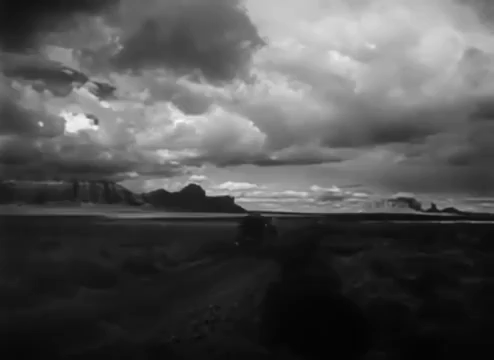
Y’know...I liked it! I really liked it!
This movie is often referred to as the greatest Western of all time, and the reason that the Western survived into the next several decades. And honestly, I get it! It was nominated for 7 Academy Awards, and won for Best Supporting Actor (Thomas Mitchell, AKA Doc) and Best Original Score, both of which were quite deserved!
Review time!
Cast and Acting - 9/10: Sure, it’s a little hokey. But at the same time, it’s good classic Hollywood acting! Wayne, Trevor, Mitchell, Carradine, and Devine are standouts for me, all of which serving their roles well. Also, fun fact about Andy Devine: he’s the voice of Friar Tuck in Disney’s Robin Hood! KNEW I recognized that voice!
Plot and Writing - 10/10: Standard plot? Sure. Engaging as hell? Hell yeah! This is just a good story, plain and simple. No holes, no problems, no mistakes, and purely straightforward. Great writing by the original story author, Ernest Haycox, and great screenplay by Dudley Nichols!
Directing and Cinematography - 10/10: Great looking movie, too! All credit to John Ford, unsurprisingly. Cinematographer Bert Glennon also deserves credit for the beautiful landscape shots throughout. Gogeous film, even in black-and-white!
Production and Art Design - 8/10: This is pretty standard Western production design, so not a lot to write home about specifically. However, that doesn’t mean it’s bad. To the contrary, it’s quite good! Just does stand out to me quite as much as other movies. Might be a nitpick, but it’s still something against the film.
Music and Editing - 10/10: No complaints! Seven composers definitely make their presence known, and you can tell that this score heavily informed all Western scores after it. It’s iconic, and it’s perfect for the mood. As for the editing by Otho Lovering and Dorothy Spencer...it’s great! Perfect pacing, well-edited...no complaints whatsoever.
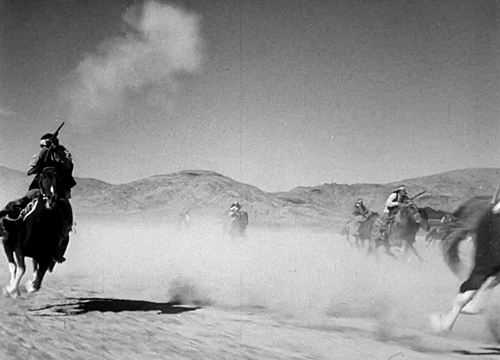
94%, and I had fun with this one!
I honestly did have quite a good time with this one. I can’t really call it a “fun” movie, but it definitely is a good one. Plus, it’s a John Ford/John Wayne film, which is basically a staple of the genre. So, what’s next?
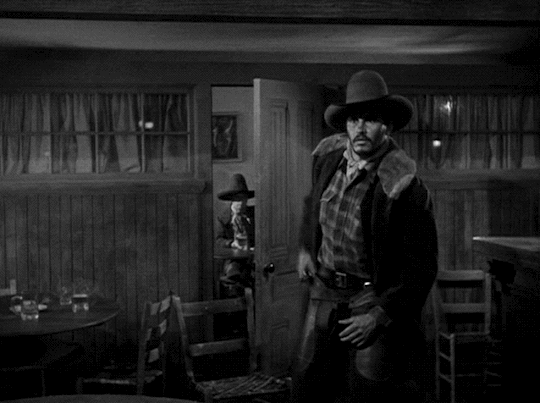
Next: My Darling Clementine (1946), dir. John Ford
#stagecoach#stagecoach 1939#john ford#claire trevor#john wayne#andy devine#john carradine#thomas mitchell#george bancroft#apache#western august#365 days 365 movies#365 movie challenge#western genre#user365#usersasha#my gifs#mygifs
9 notes
·
View notes
Photo
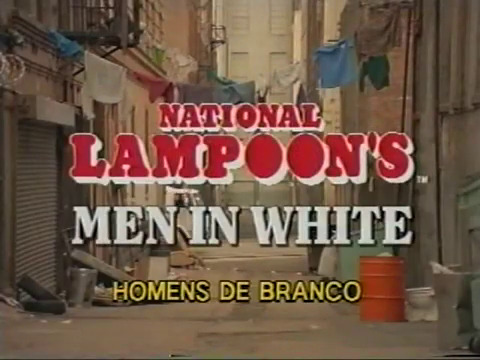

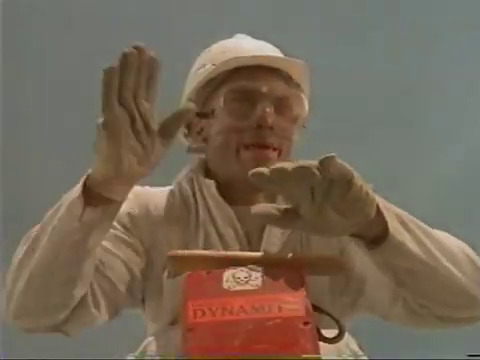


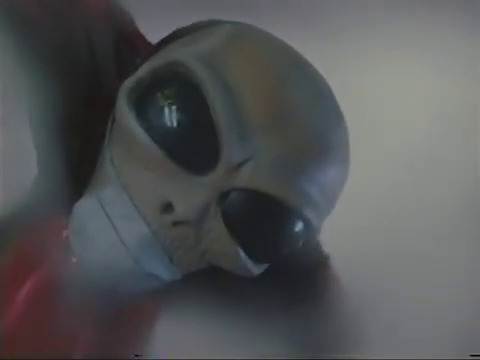
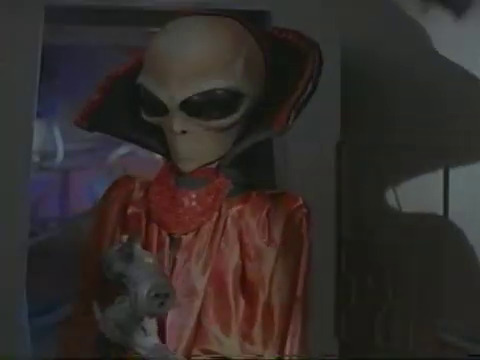
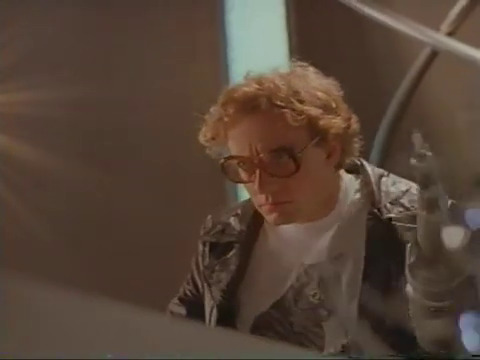
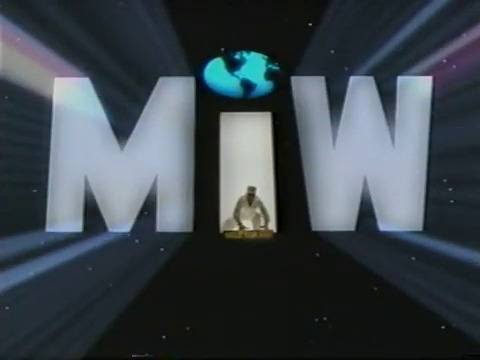

National Lampoon’s Men in White (1998)
Film review #537
Director: Scott P. Levy
SYNOPSIS: Two low-ranking garbage men are abducted by aliens that intend to launch a full-scale invasion of earth. They manage to escape, but are immediately recruited by the government to put a stop to the invasion. However, there are mysterious forces at work that do not want them to succeed...after all, who would put two garbage men in charge of saving the world?
THOUGHTS/ANALYSIS: National Lampoon’s Men in White is a 1998 sci-fi comedy film that is unsurprisingly a parody of the 1997 film Men in Black. The film centres around two garbage men, Roy DuBro and Ed Klingbottom, who are abducted by aliens led by Glaxxon, who intends to invade the Earth with his army. They manage to escape the alien’s clutches, but are almost immediately recruited by the government to stop the invasion by Dr. Strangemeister, who has secretly selected the lowest, most inept government officials to deal with the invasion and fail, since he is secretly working with them. The film is, as the title suggests, a parody of the man in Black film that was released a year earlier, but it is a very loose parody, poking fun at other science-fiction films including Independence Day. The plot is very simple, but it’s just a vehicle for all the gags and comedy, so it’s easy enough to follow. The one thing I’m not sure about is who this film is really aimed at: it has a P.G. rating, and there’s no real adult humour or language, but there’s a fair amount of references that younger viewers probably wouldn’t get. If you’re watching it as a Men in Black parody, there’s enough references throughout the film, and plenty of visual gags that, while nothing special, are still decent. There’s a fair amount of more subtle gags, such as the scenery changing through the President’s windows every scene, which is quite funny, and it reminds me of the Naked Gun films in that no one ever references them. The mix of visual gags, fourth-wall breaking, and slapstick humour is a lot of different techniques that makes threading the film as a whole together problematic; but again, as it’s a comedy-parody film, you can probably just enjoy it for the different gags. Having the National Lampoon’s title attached to it also suggests it would be targeted for an older audience as many of the films are, but I don’t think this is meant to be the case.
The film was produced by Saban International, who most notably do the Power Rangers series, and the aliens and effects definitely have that look and feel about them. Karim Prince, who plays Roy DuBro, also starred in one of the Power Rangers series. There’s a decent mix of CG that doesn’t look too bad for the time, and practical effects that work fairly well. Overall, the film is a mish-mash of different gags that doesn’t really tie together too well, but has a few good jokes (like the scene which makes fun of the Men in Black “neuralyser” that wipes memories). I think the cast is decent enough (apart from the lazy German stereotype of Dr. Strangemeister), but they’re not given too much to do other than delivering bad jokes. It’s not a gripping film, and there’s very little of substance, But I guess for a family film there’s different references and humours for different viewers so I suppose that’s good? I’m not sure anyone who hasn’t watched Men in Black or Independence Day or the like will really appreciate or enjoy it, and it’s references make it a dated film that diminish the humour of the film to modern viewers.
0 notes
Text
tentative review of the falcon and the winter soldier overall (spoilers under the cut):
overall, the characters themselves are the strongest parts. my favorite episodes were episodes one and five, where the action was sidelined and instead we saw a look at the characters we loved and saw them grow. the moments with sam and bucky coming together as friends, as two guys trying to find their way in the world after coming back to it post-snap. their chemistry is awesome, and there’s a reason people love these characters - seb and anthony make them their own.
but as soon as a story involving villains and the flag smashers and all of that came into play, as soon as the show lost itself in its own action, it lost me. the actual plot was the hardest thing to follow.
don’t get me wrong - i love, love, love that sam wilson is captain america, and i love the way the characters ended up eventually. i think sam wilson as captain america emphaizes how much steve rogers was the ideal for a very specific group of people, while being a good man. sam wilson remains a symbol of what the united states truly needs and is. i also think giving bucky barnes the space to step away from the idealized world that steve rogers wanted for him and finding his own place in the world is where he needs to be. he needs to be his own person and recover and this show allowed him to do that, somewhat. i like the direction of sharon as anti-hero, because she was wronged (though if marvel hadn’t sidelined her and emily vancamp in the first place i think sharon could’ve been something really special). her as the power broker gives us the chance to see her come into her own as a different character with a lot of give in terms of being both with the boys and against the government and people who wronged her.
but.
there’s just so much... mess in these episodes that’s hard to get away from. problems with story, writing, editing. i know it’s a disney show, no matter how many times sam wilson says shit, no matter what brutality happens to shock or surprise us. but this means there will always be that feeling of them holding back. what did this show really address? what did this show really give us in terms of a stance?
what i mean is that, after watching six episodes, tfatws clearly tries to be a show about racisim. but, i don’t think i could tell you what disney thinks about racism besides “racism bad,” and i don’t think i’m supposed to know. this is the example that epitomizes it for me: what i can tell you is that john walker decapitates a guy on screen and gets a dishonorable discharge - but that’s it. john walker, a white man named as captain america, brutally murdered a man in front of millions and all he gets is a gentle hand out the door. and his best friend, a Black man told given us as his moral compass, gets his neck broken without a second thought. a Black side character gets killed to advance the character of a white man, and then... nothing. and then, in the last episode, walker gets mad at karli for saying that lemar’s life didn’t matter, but the problem is that’s exactly what disney told us by killing him.
additionally, i think this show suffers from a lot of logistical issues as well - it tries to tell what would happen if someone actually snapped away half of the living beings, but does it really? would all that would be happening if billions of people ended up back right where they started be a refugee crisis? there were five years of adjustment post-snap before all these people came back. what about food supplies after the world’s production was dramatically ramped down? clean water? housing? energy?
in summary, this show had to do a lot of heavy lifting, or at least, a lot of heavy lifting was thrust upon it - help show us life after the snap, how horrible it’s gotten, and build us two characters that we haven’t really seen since civil war, or arguably, winter soldier. it was also supposed to address racism and talk about the climate of today’s united states, while introducing new and interesting villains and a story that we could follow, all in six episodes that barely broke 45 minutes (because i am not counting the seven minute credits in the run time). unsurprisingly, it stumbled carrying such a load with such a short run time.
so, overall, i liked it. kind of. i enjoyed watching it. sometimes. and when i did, it was because the characters were what stuck to me, not the mixed messages of a megacorp trying to tell me what it wants me to take away.
i want more of sam as cap. i want more bucky. i want more sharon. (i could do without zemo.) i really do want to see more of all these characters and want to see them grow and develop in their own right. i think they’ll get the chance to do that, i really do. i just hope the characters once again get to shine, and marvel sees what they have and what they’re worth.
#tfatws#caatws#sam wilson#captain america#bucky barnes#james barnes#the falcon and the winter soldier#tfatws spoilers#tfatws review
15 notes
·
View notes